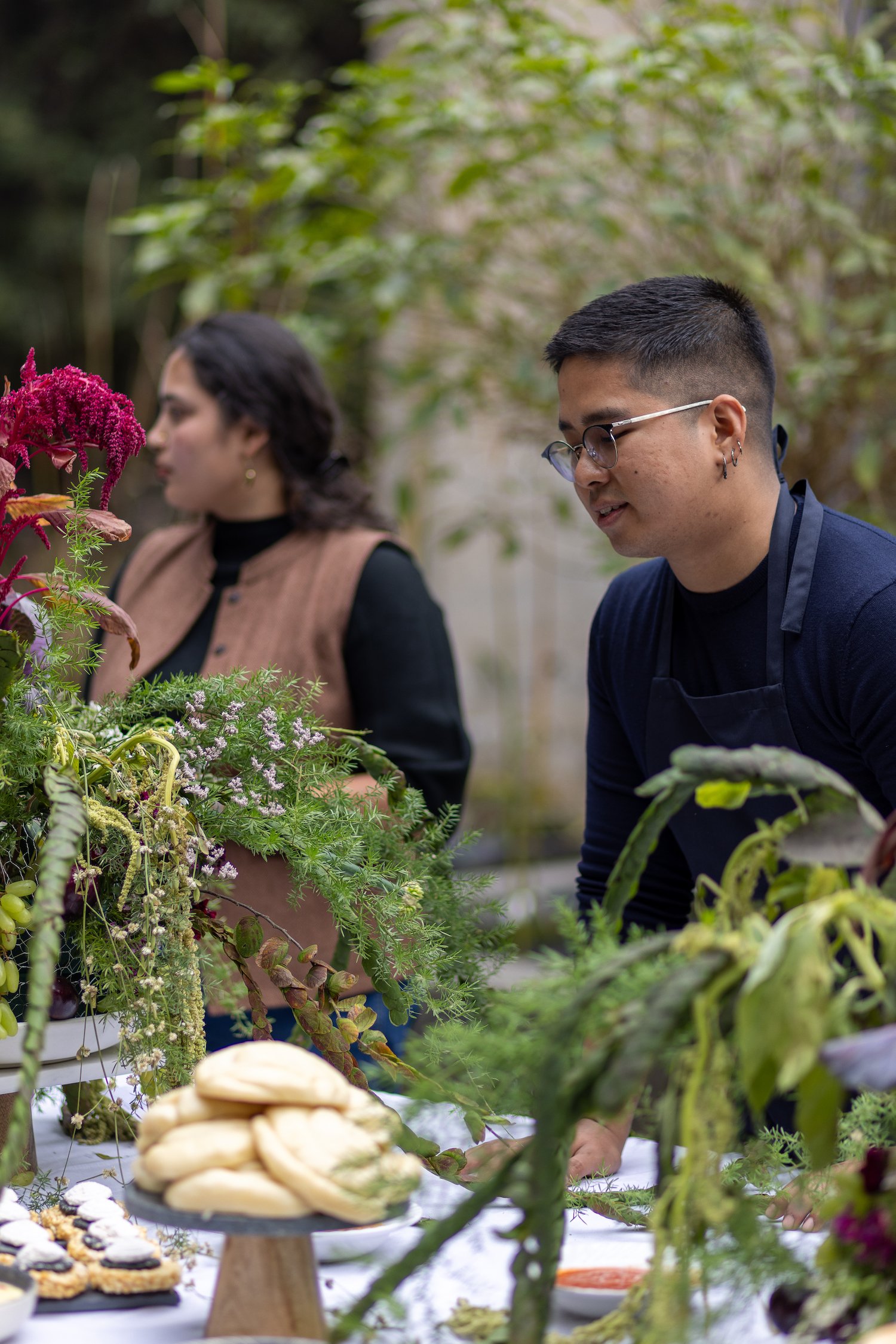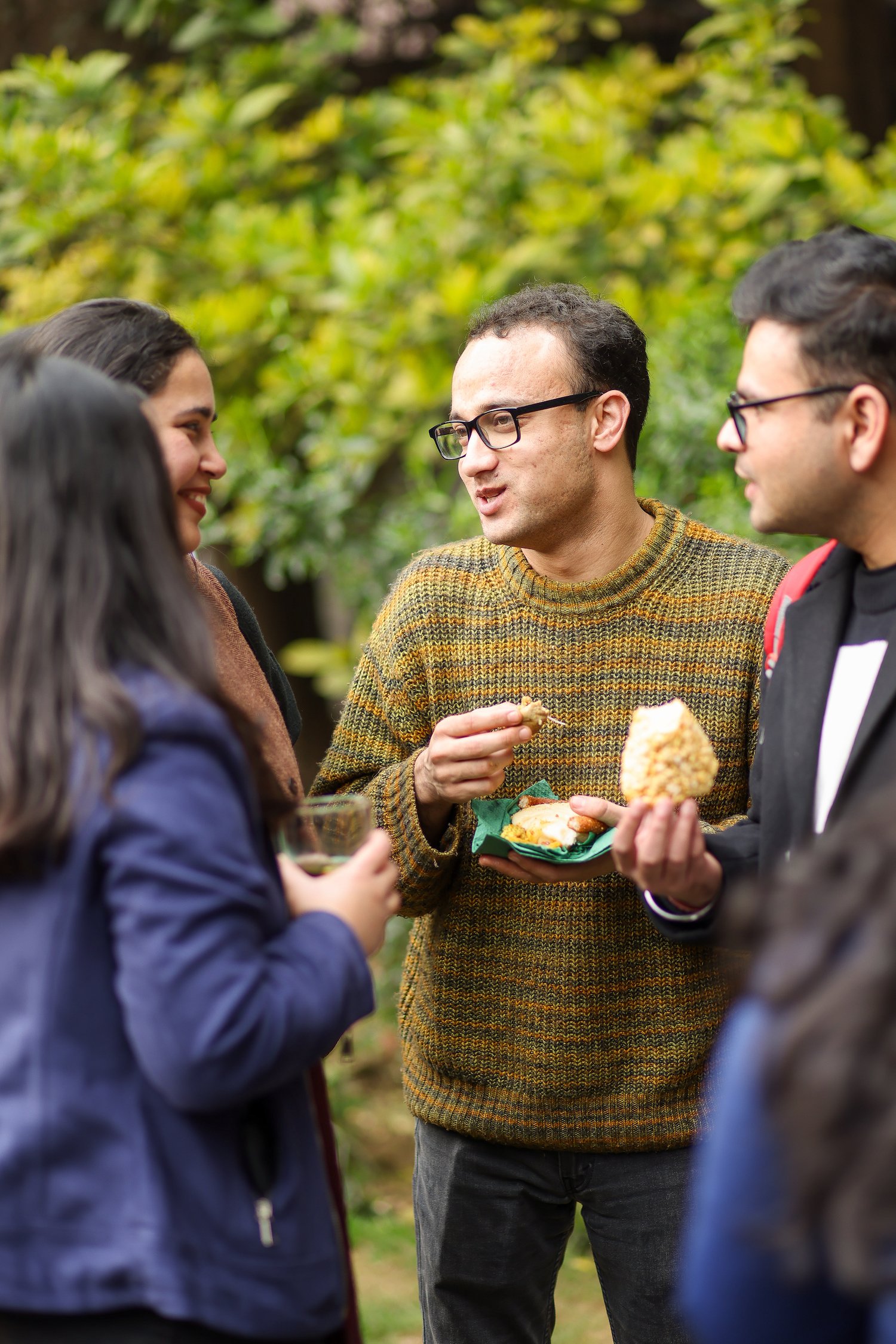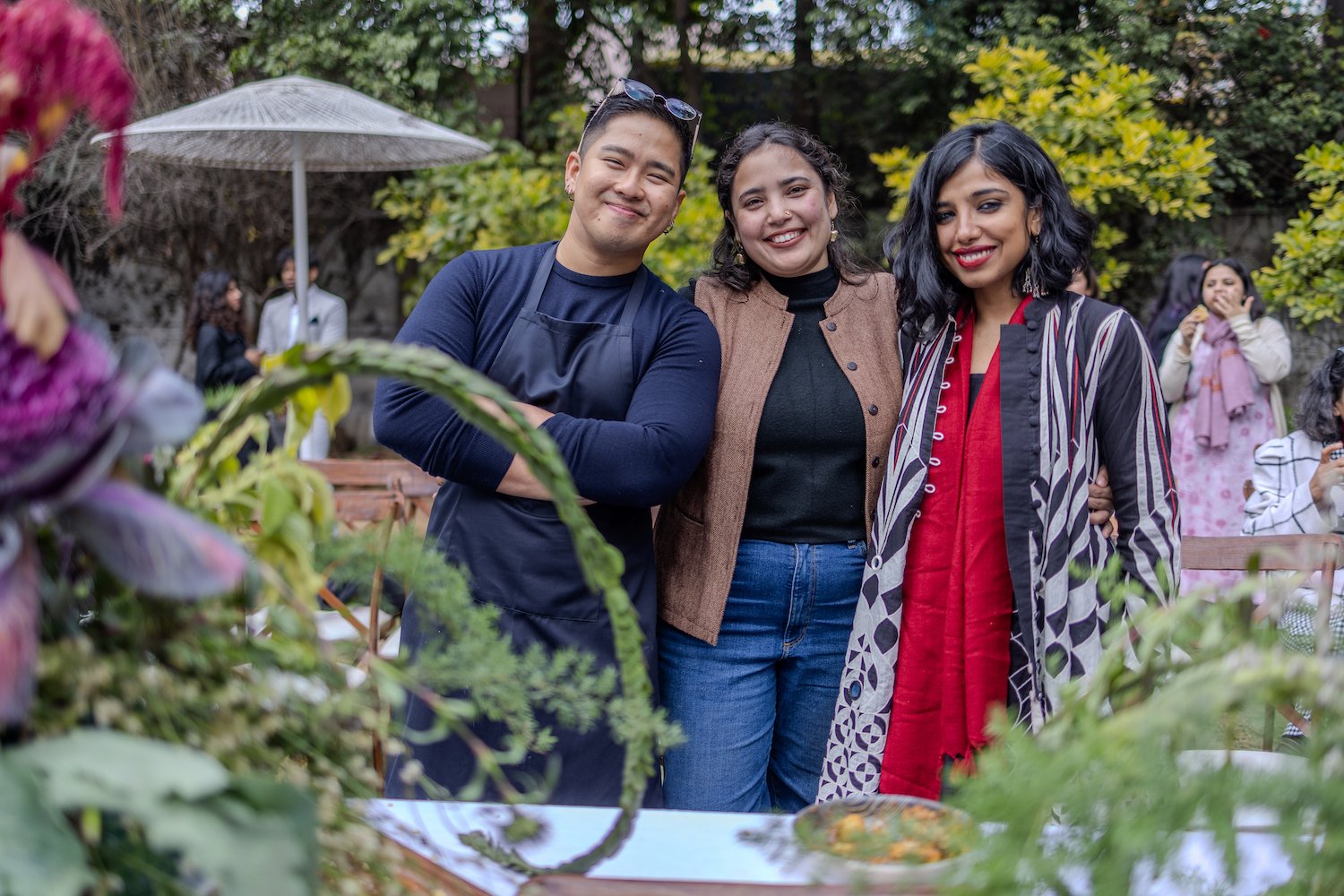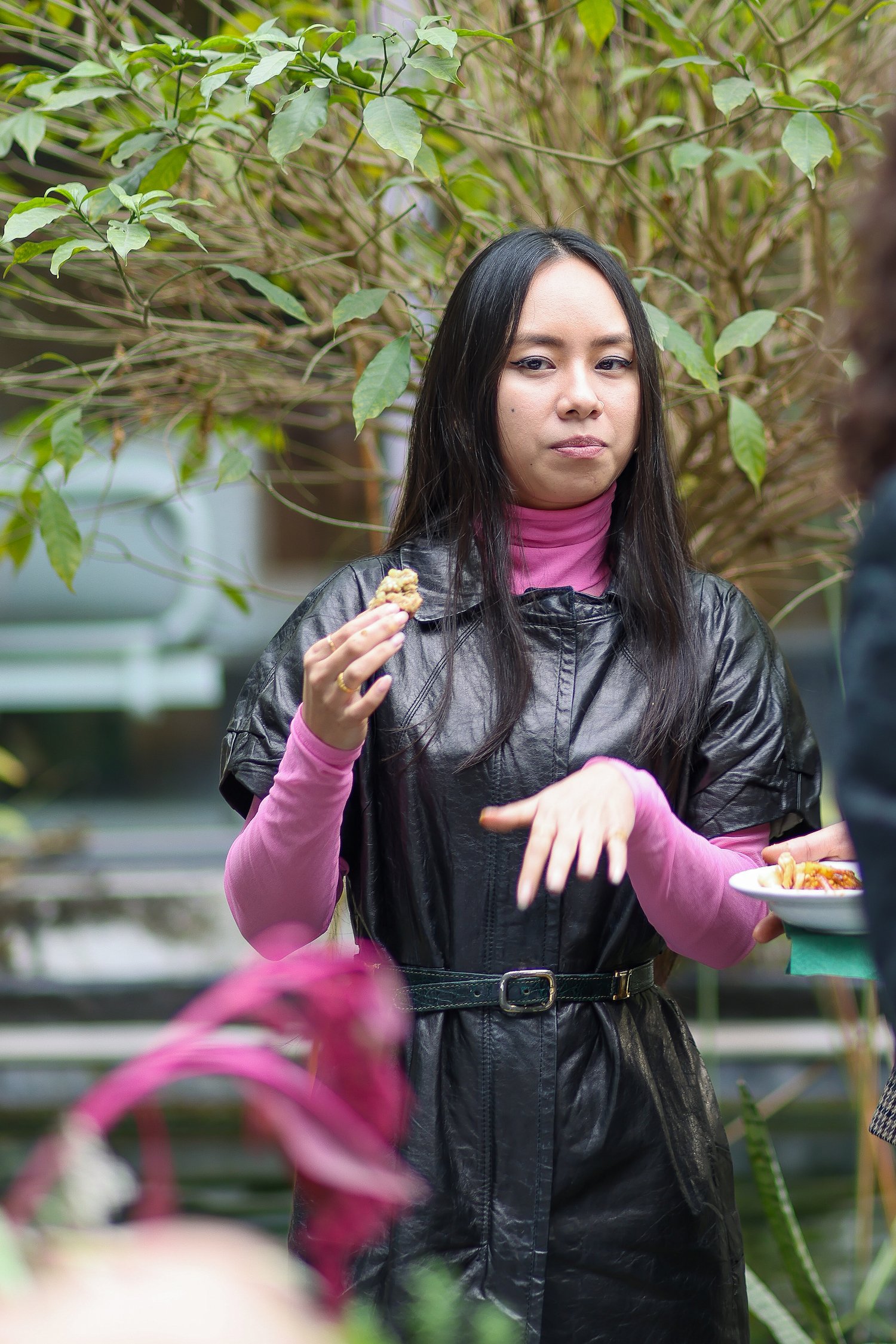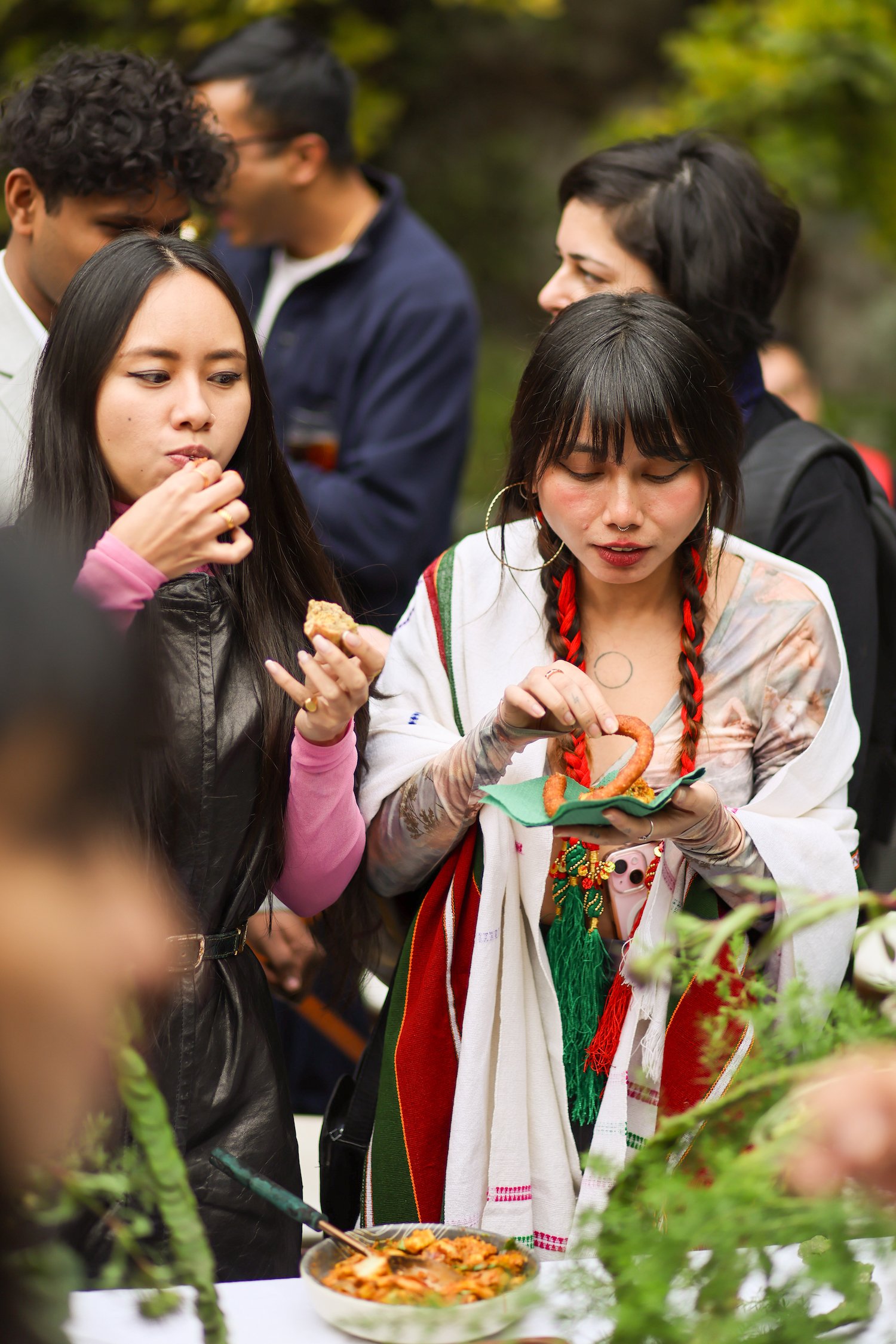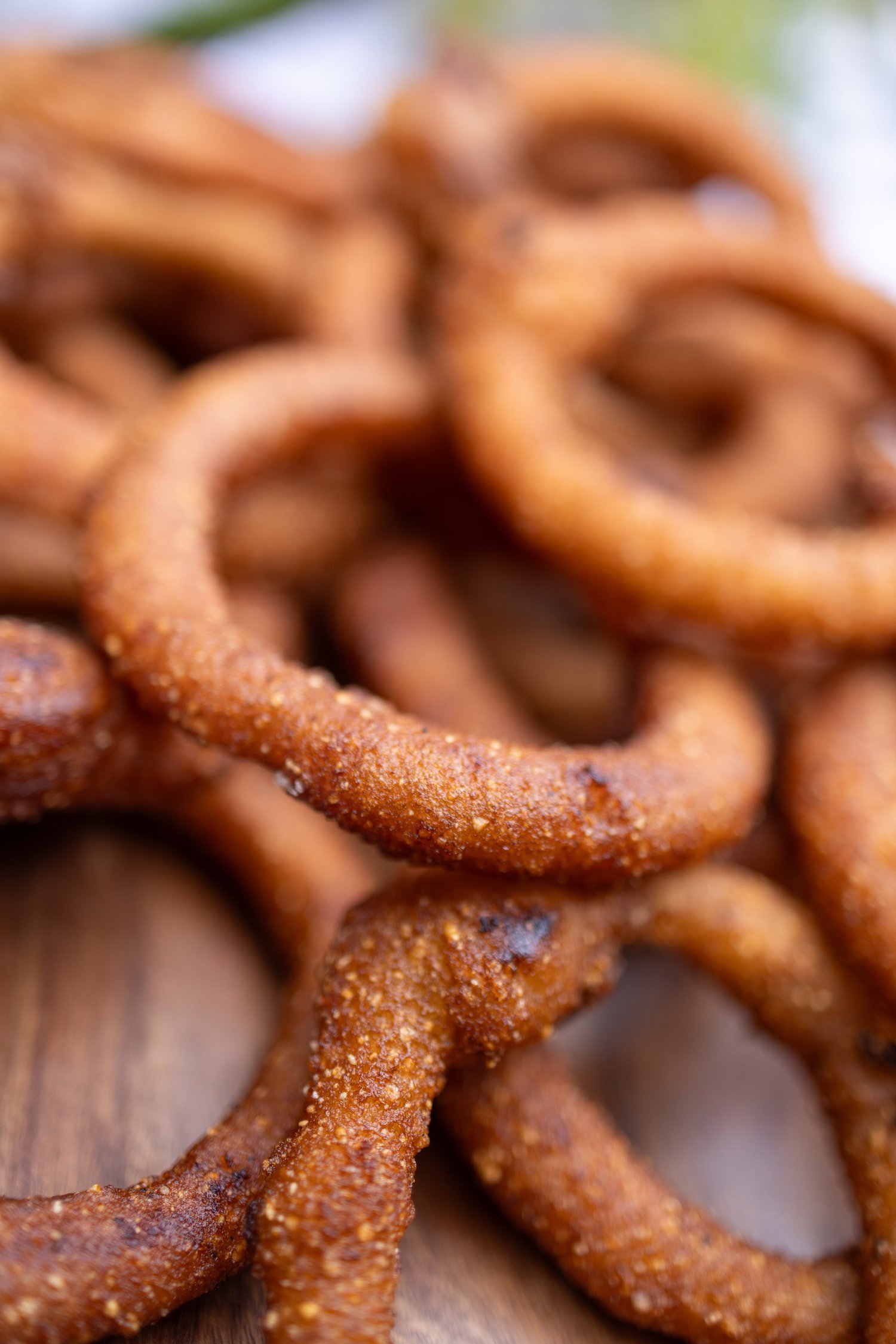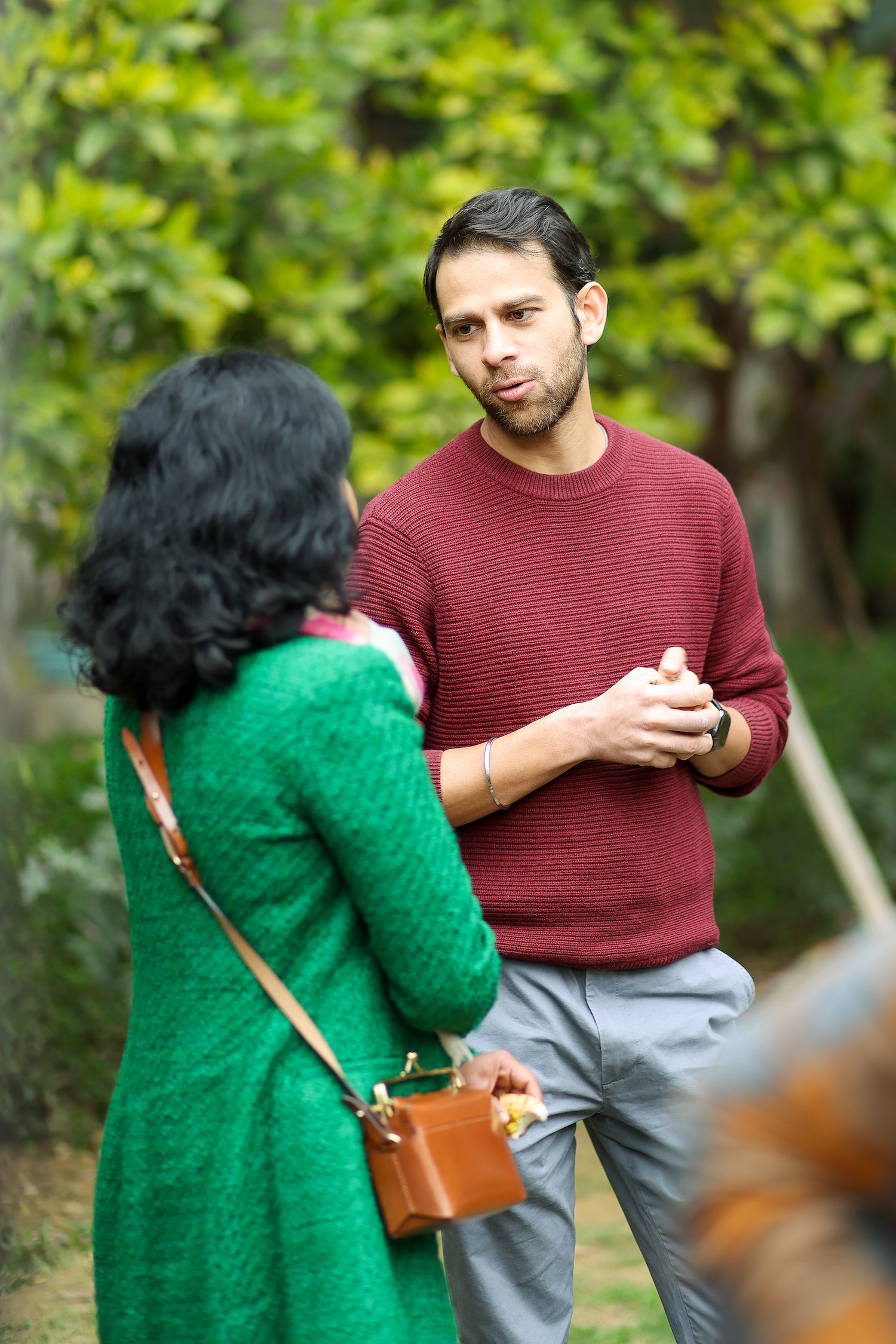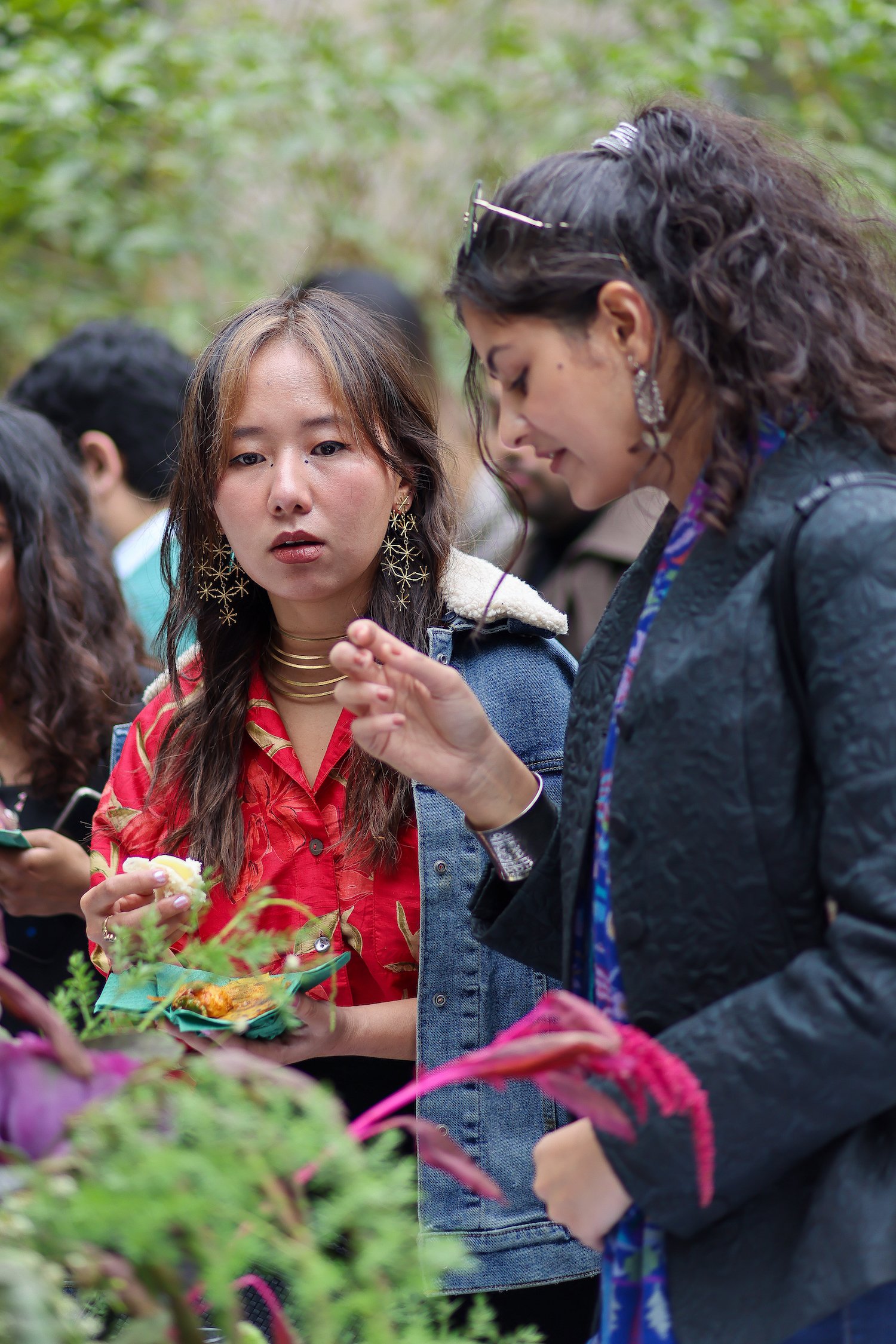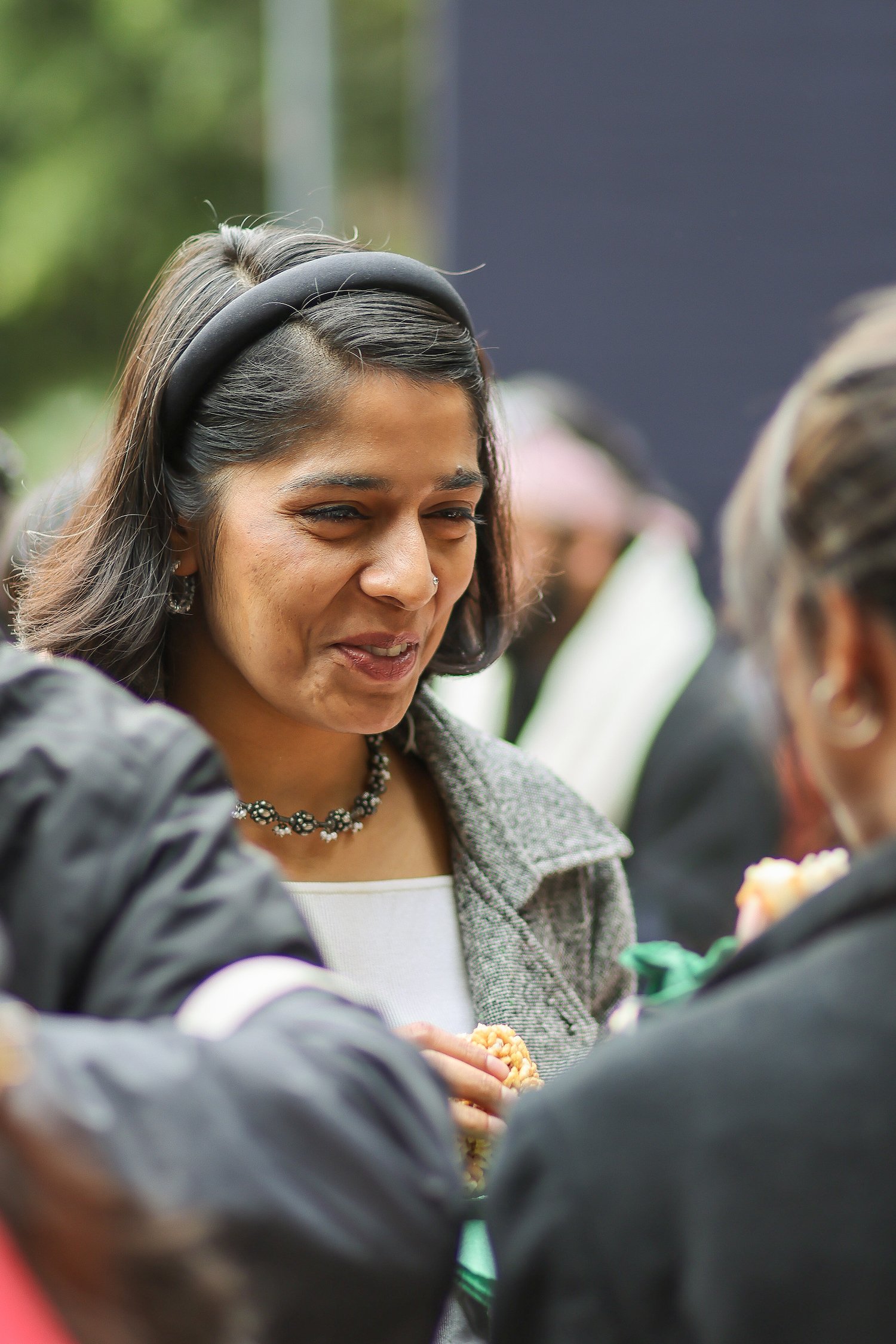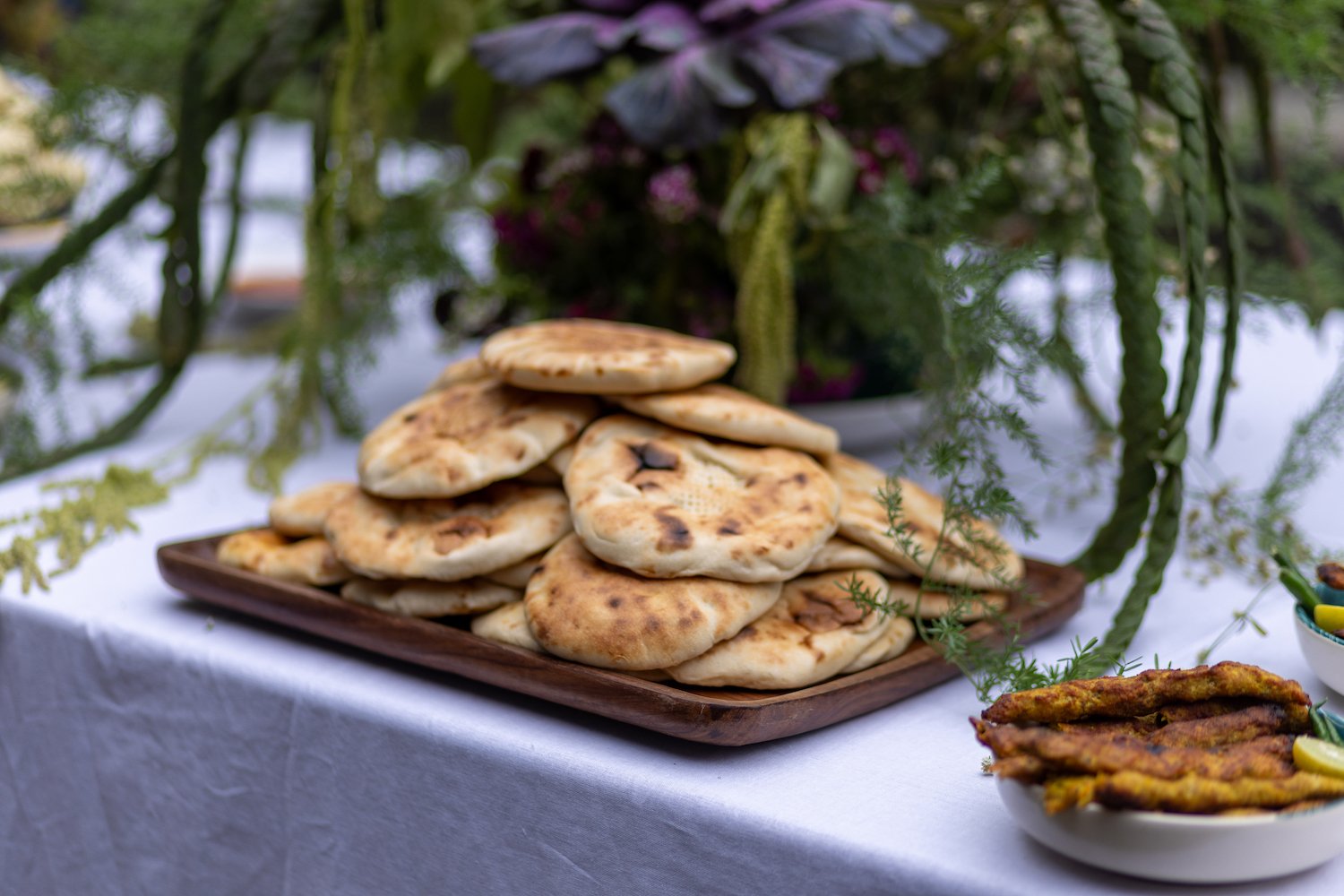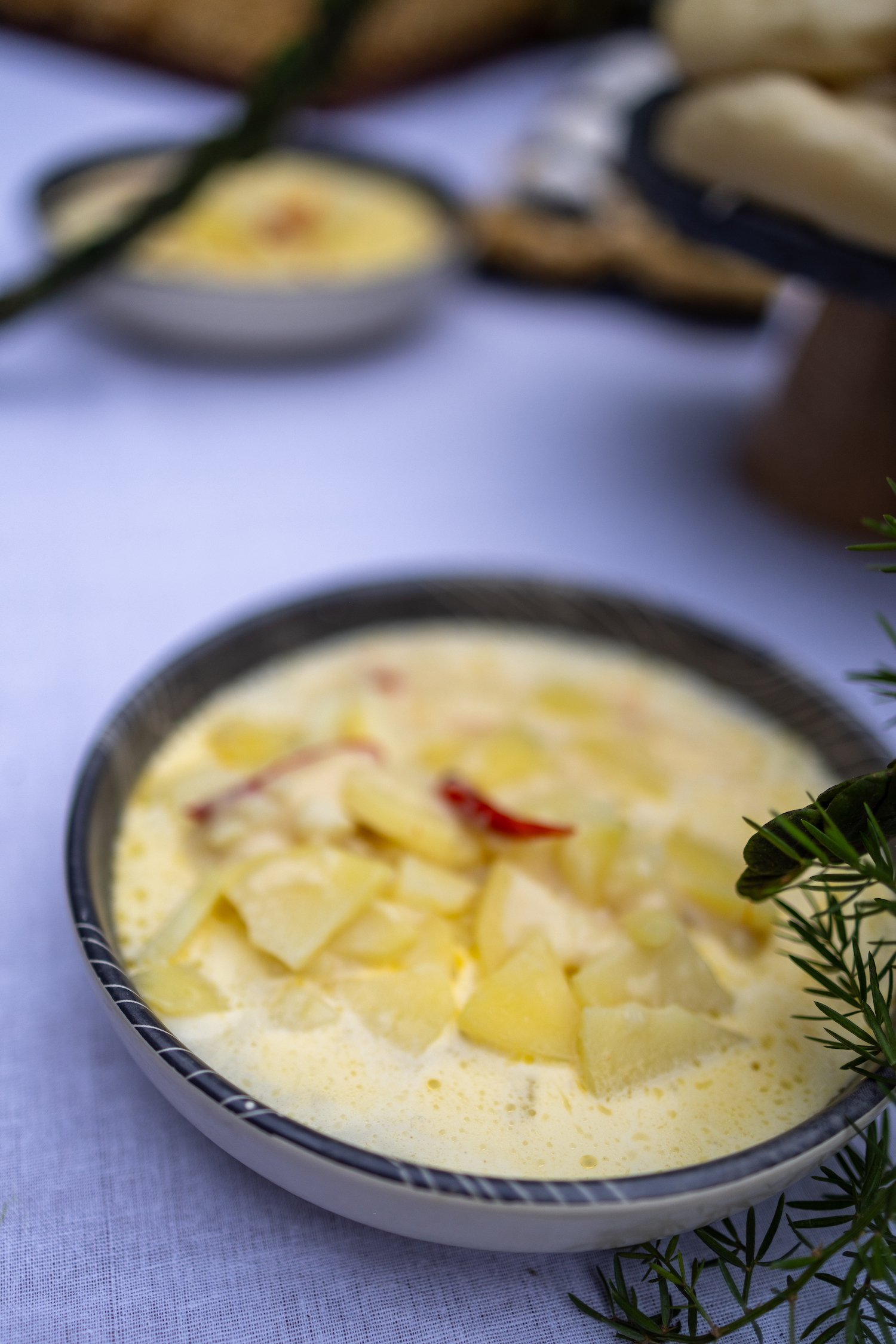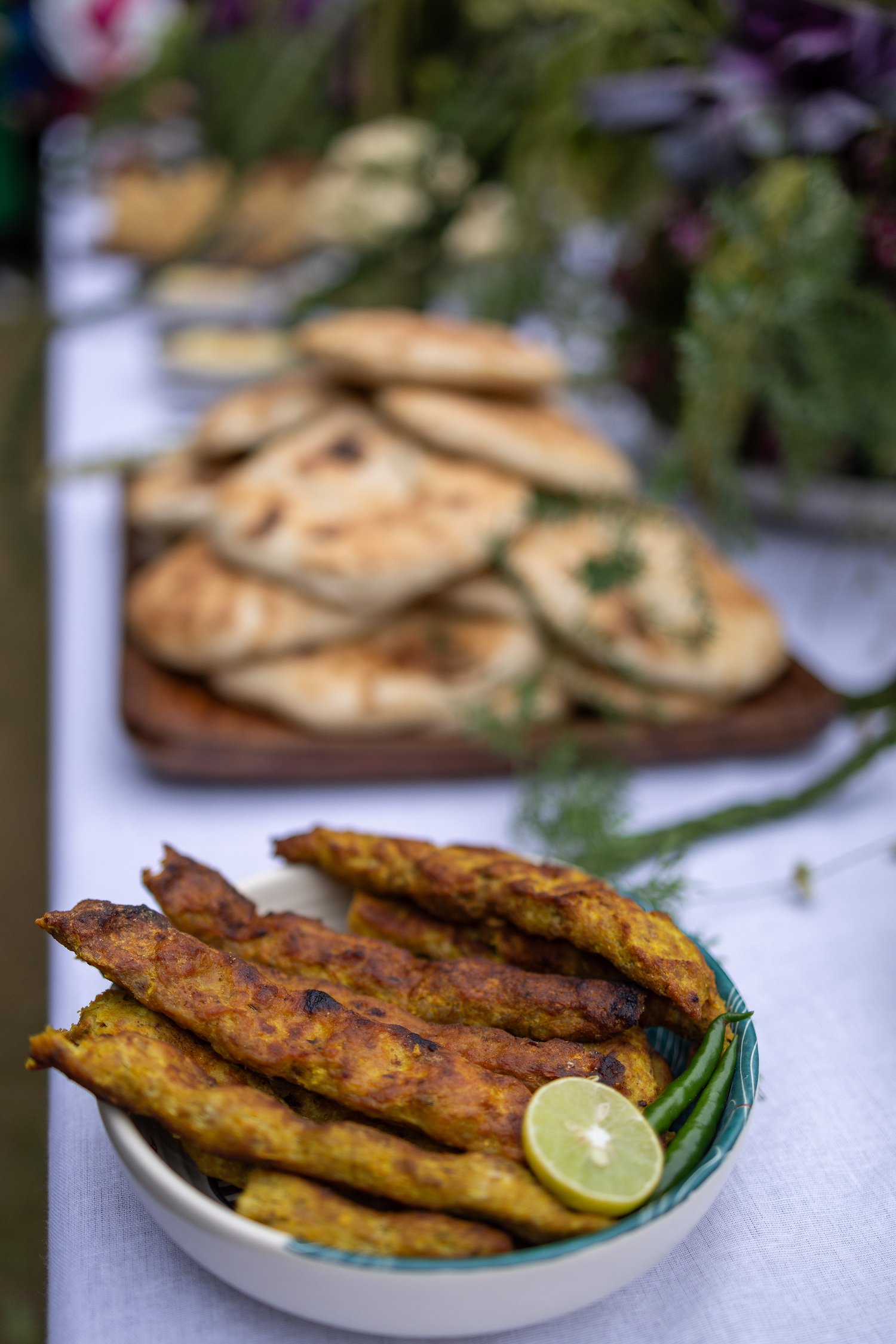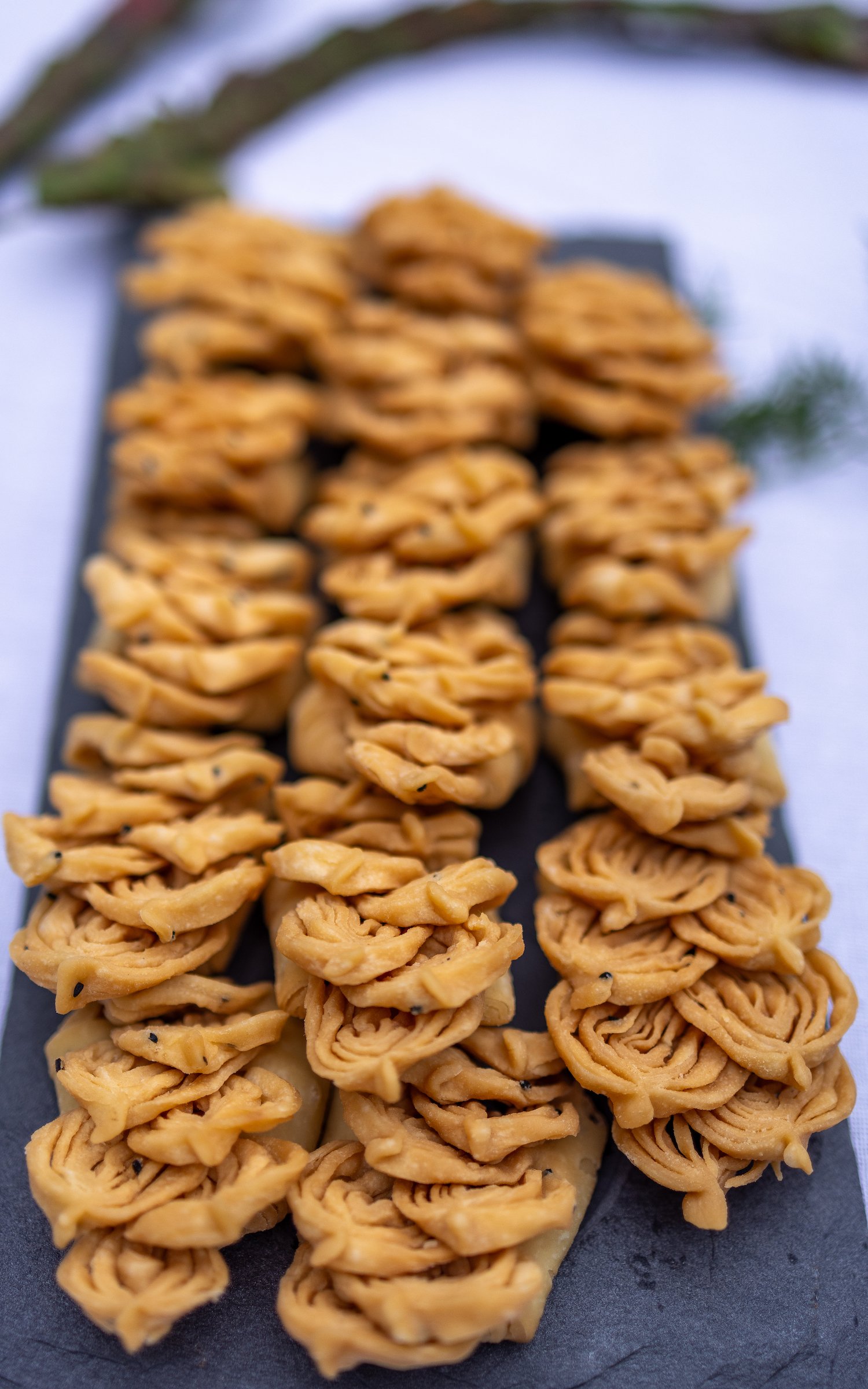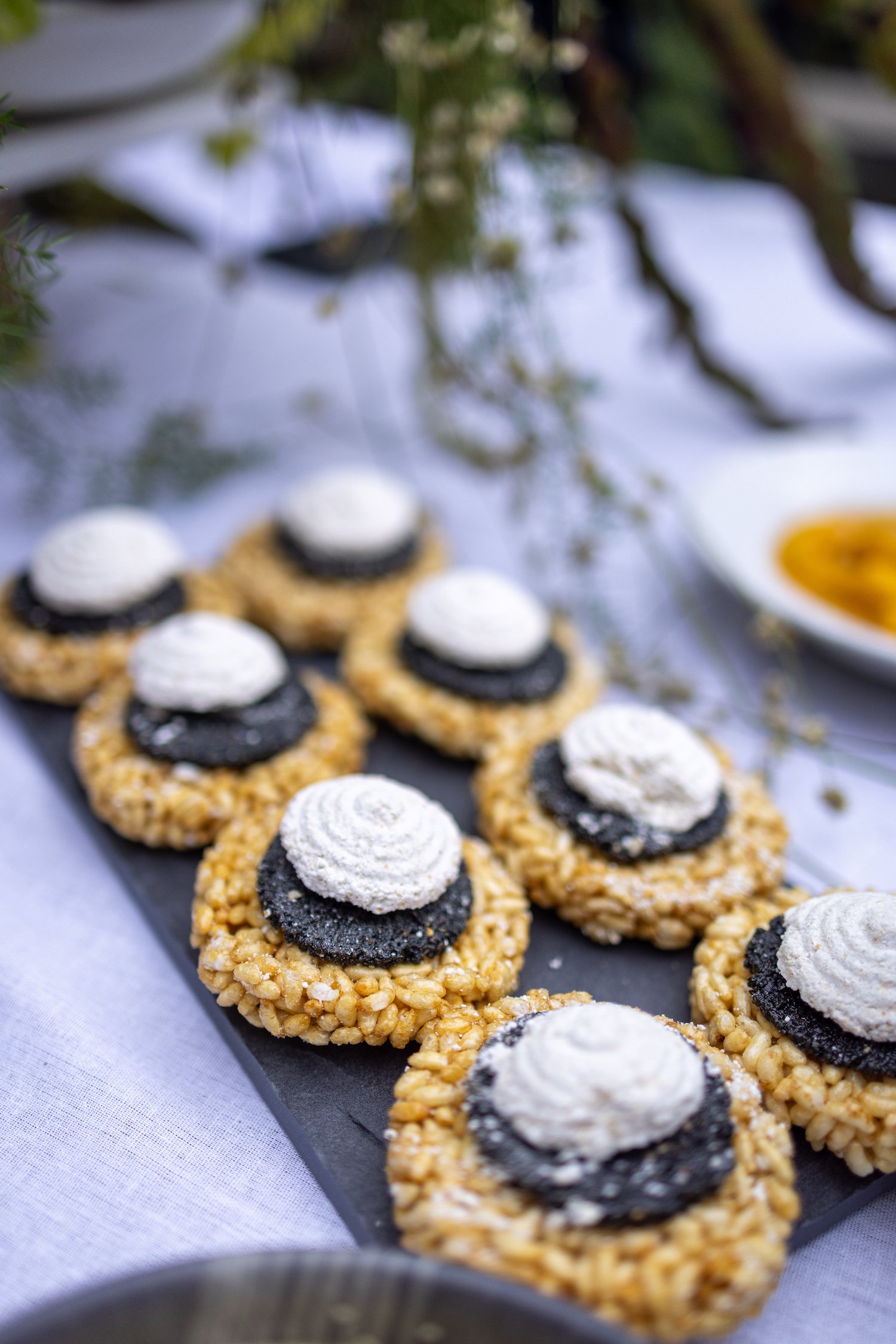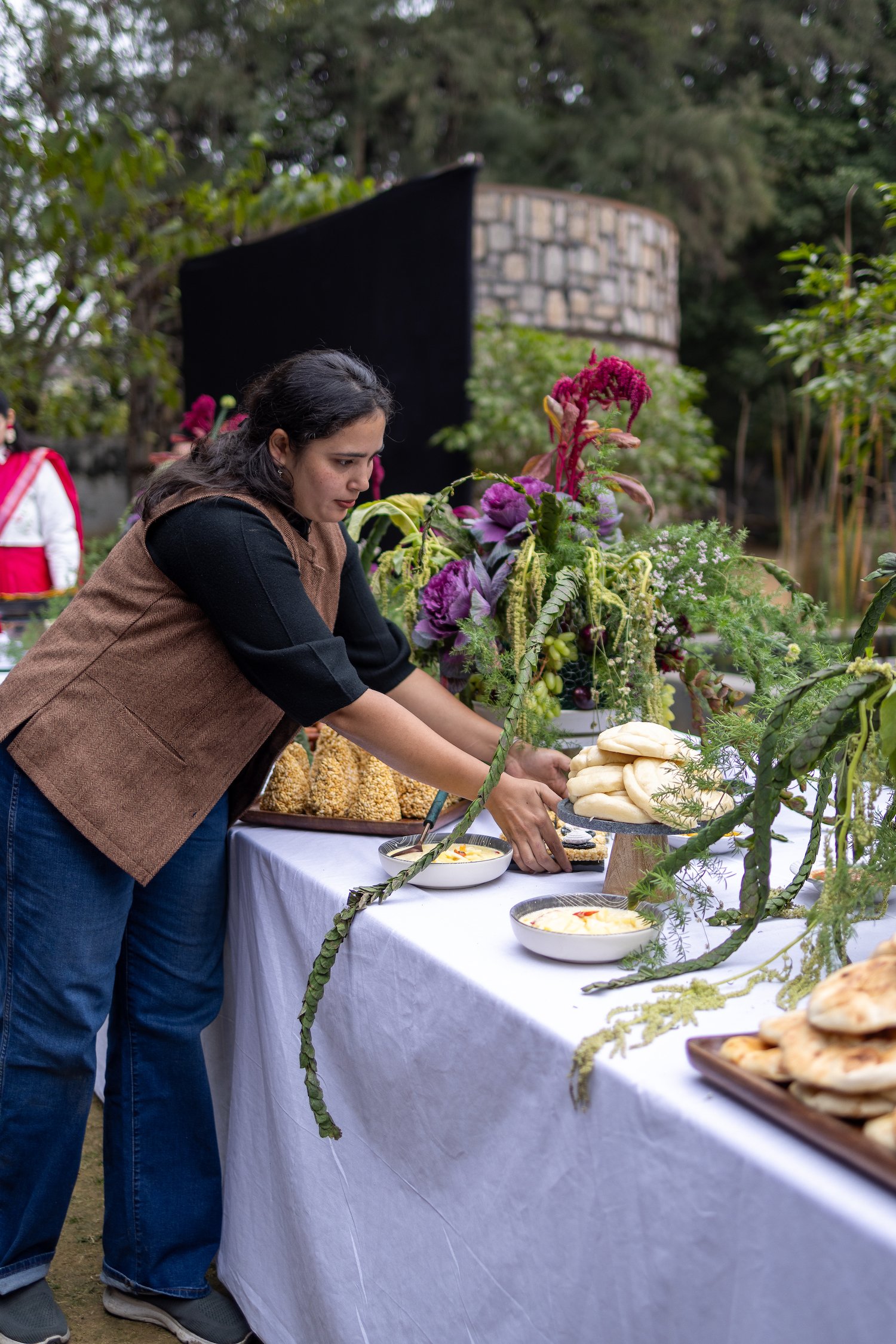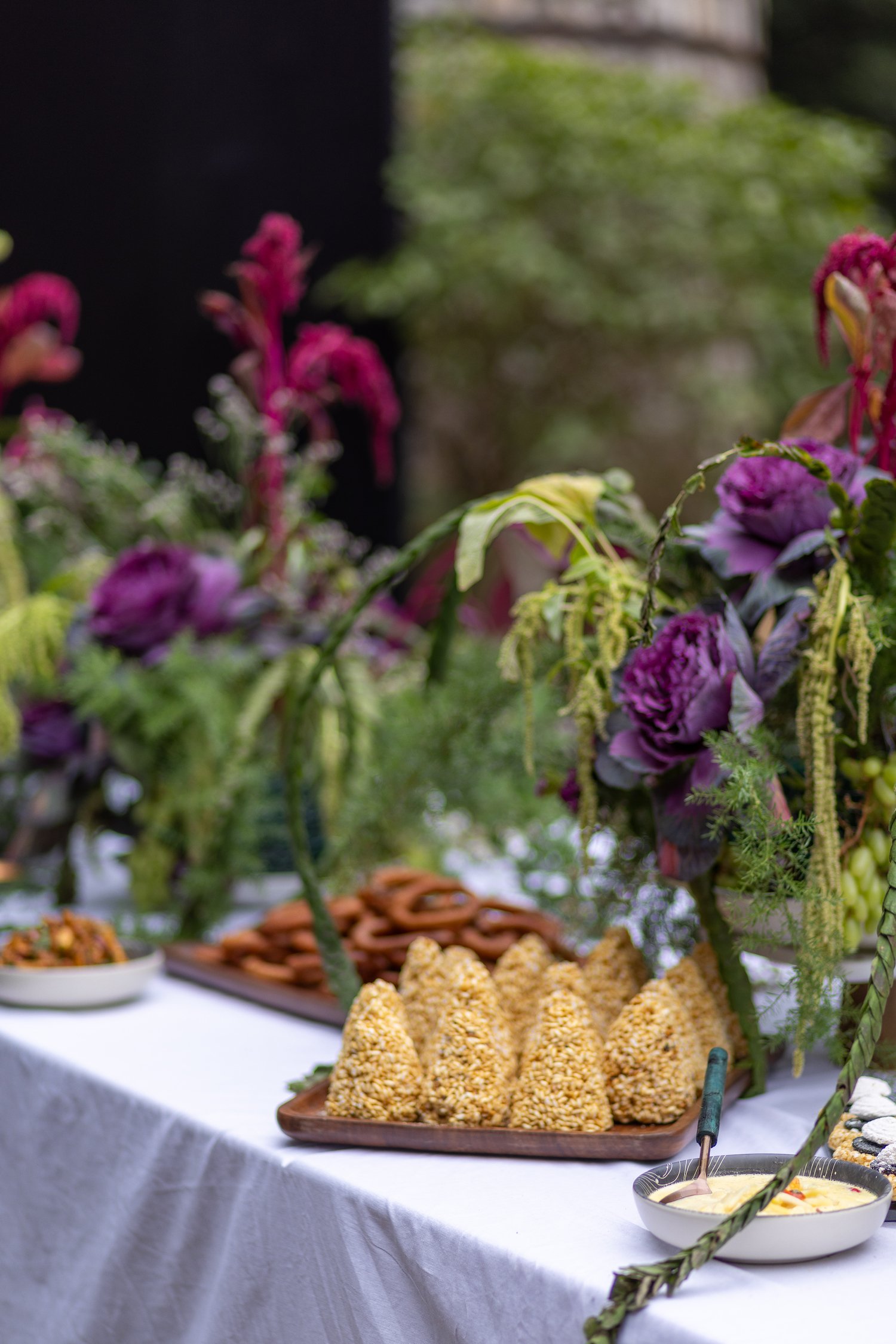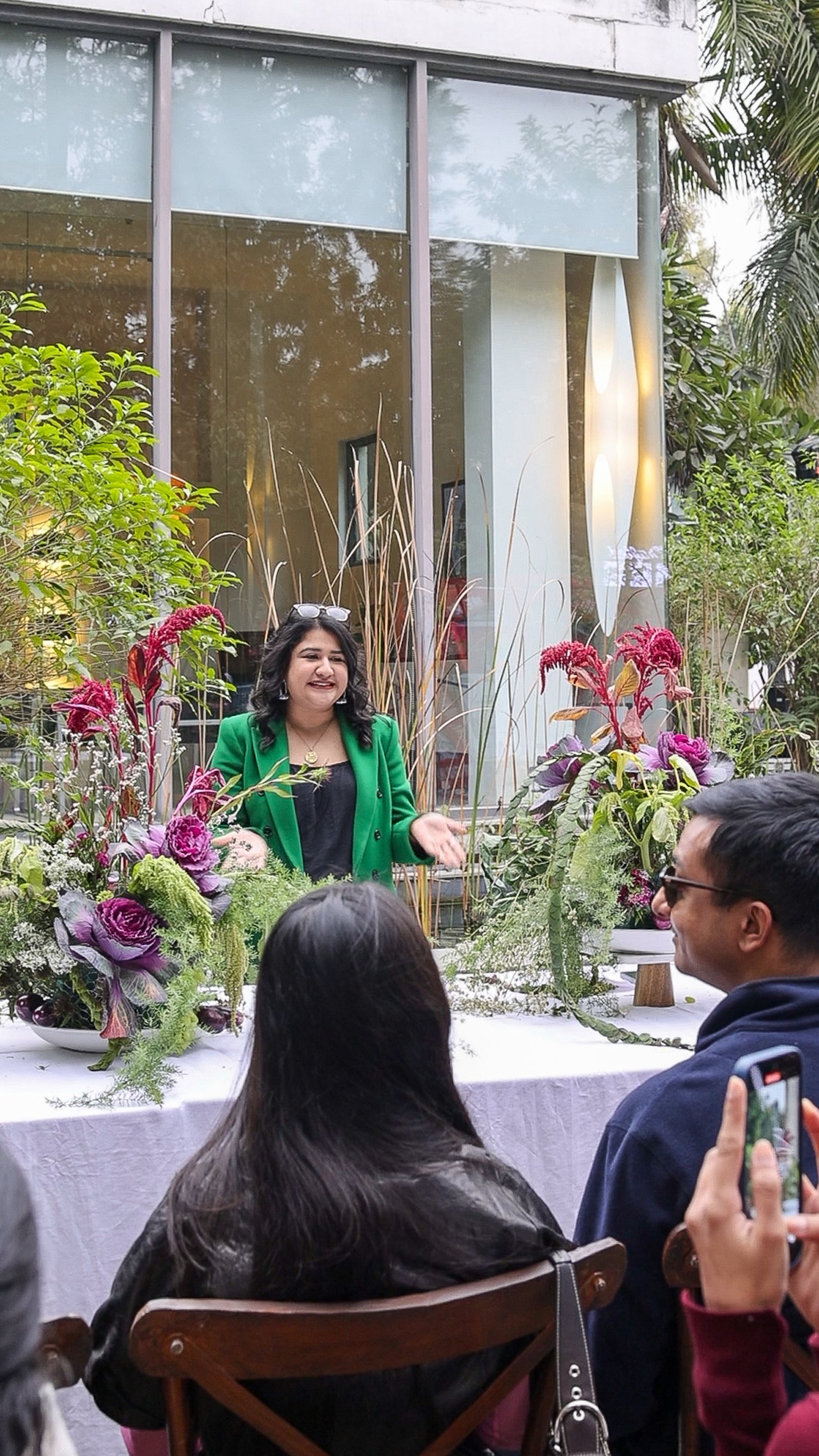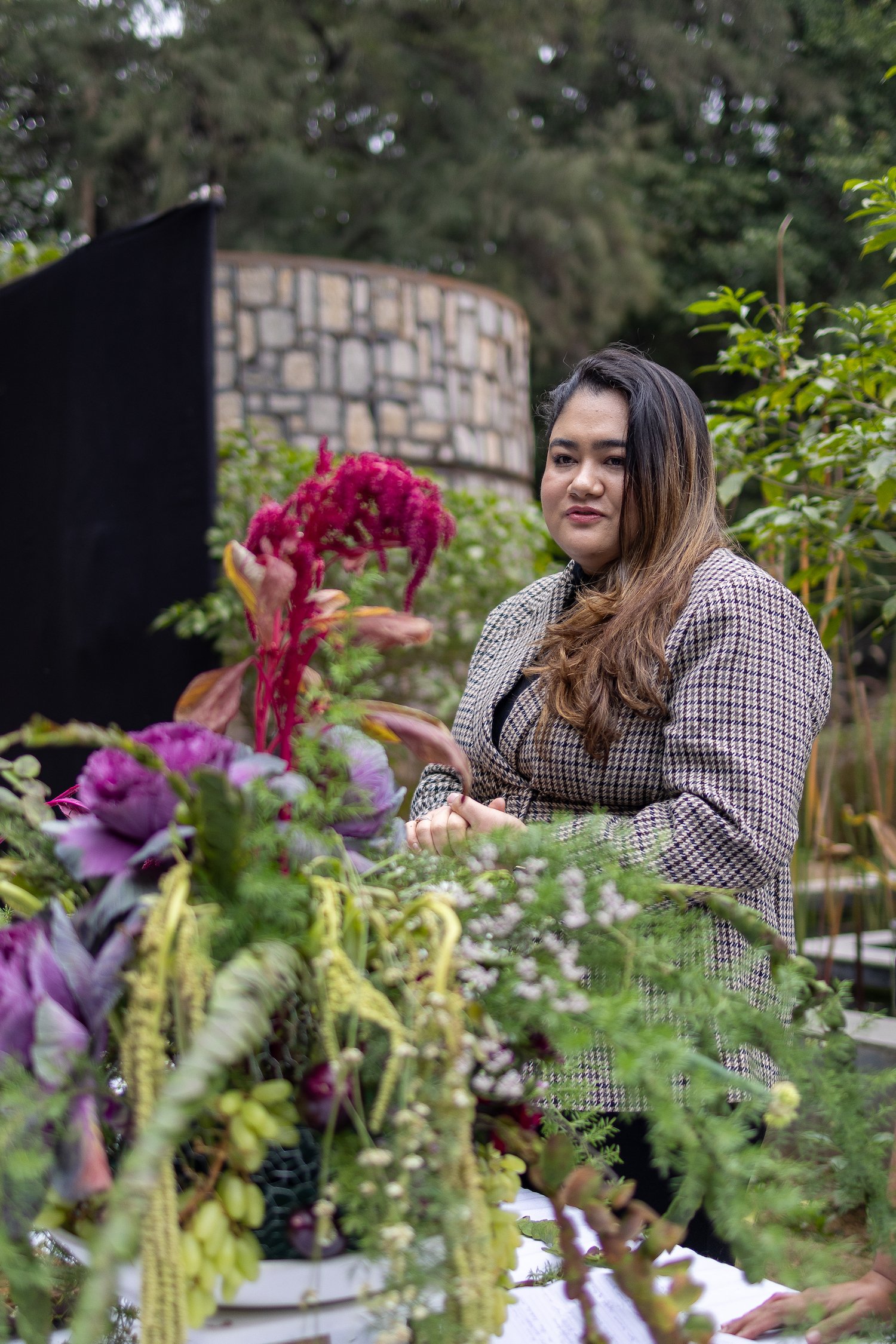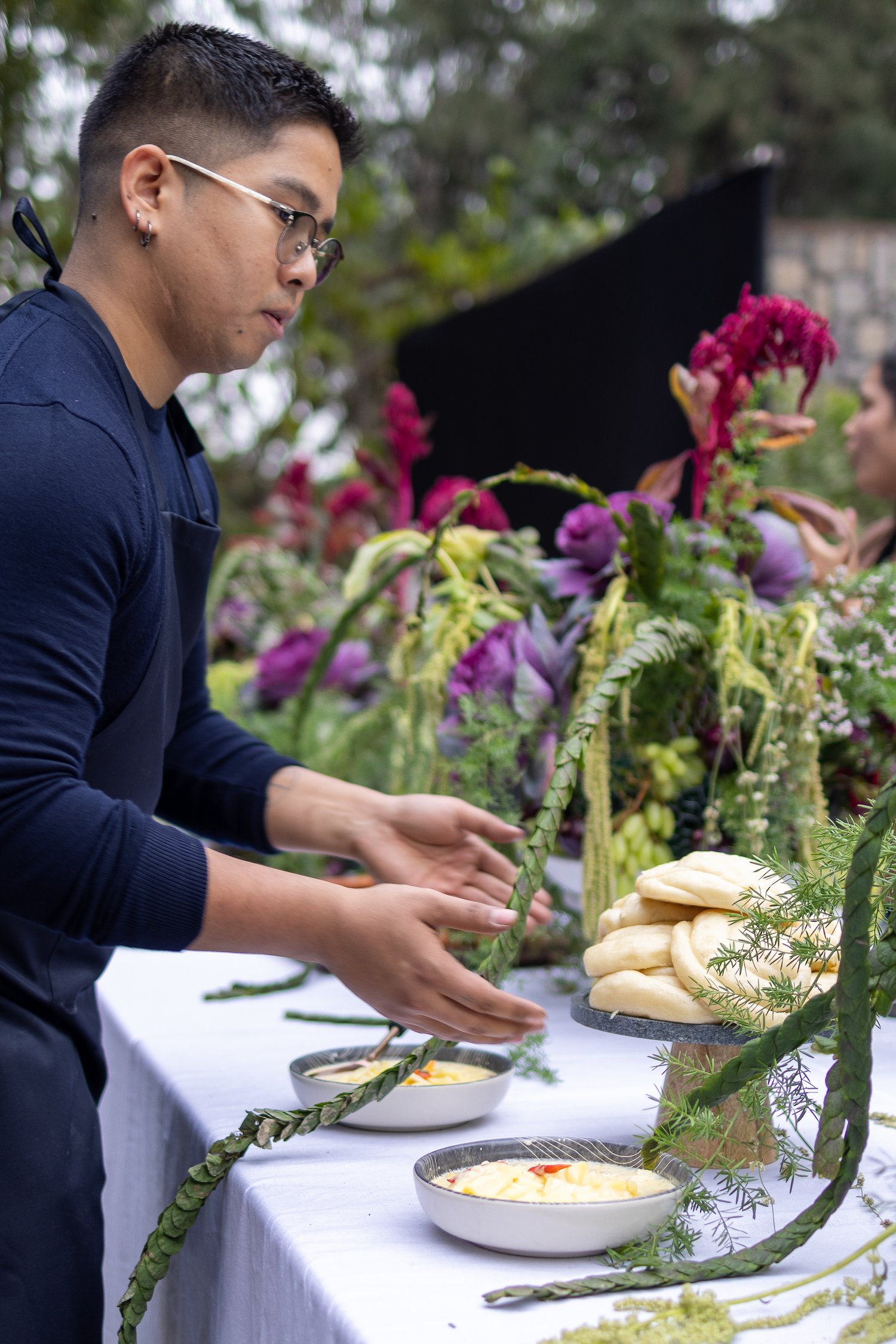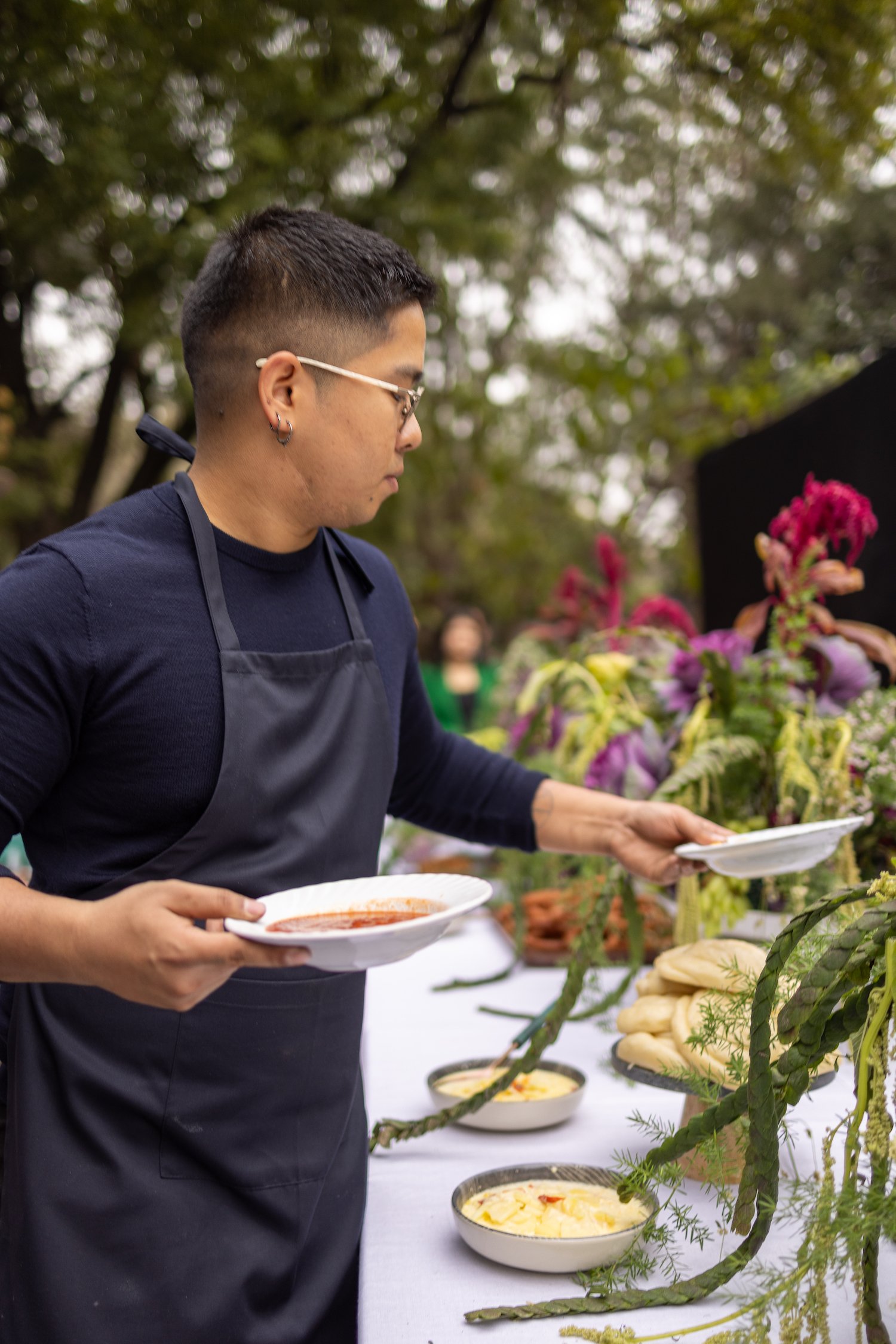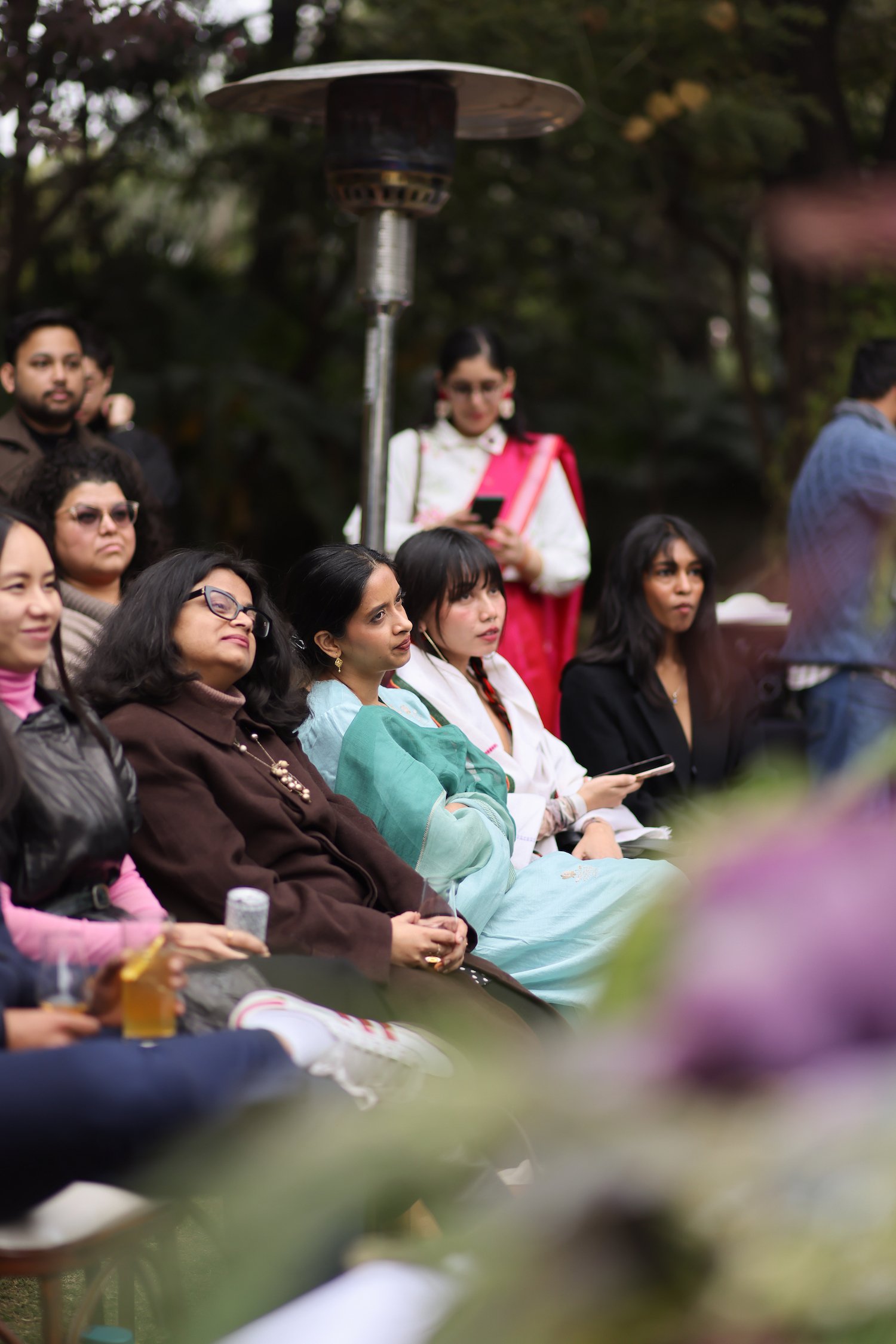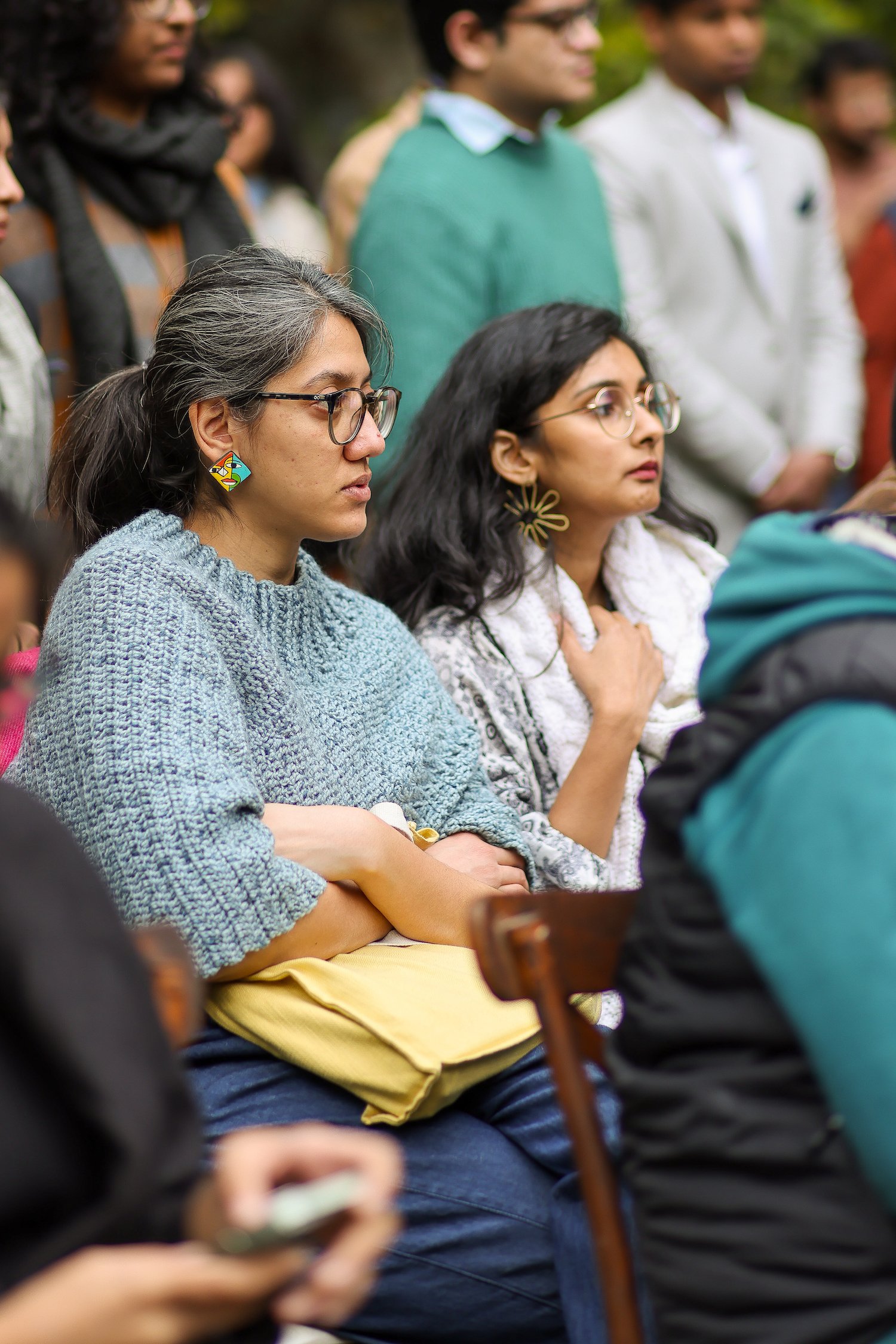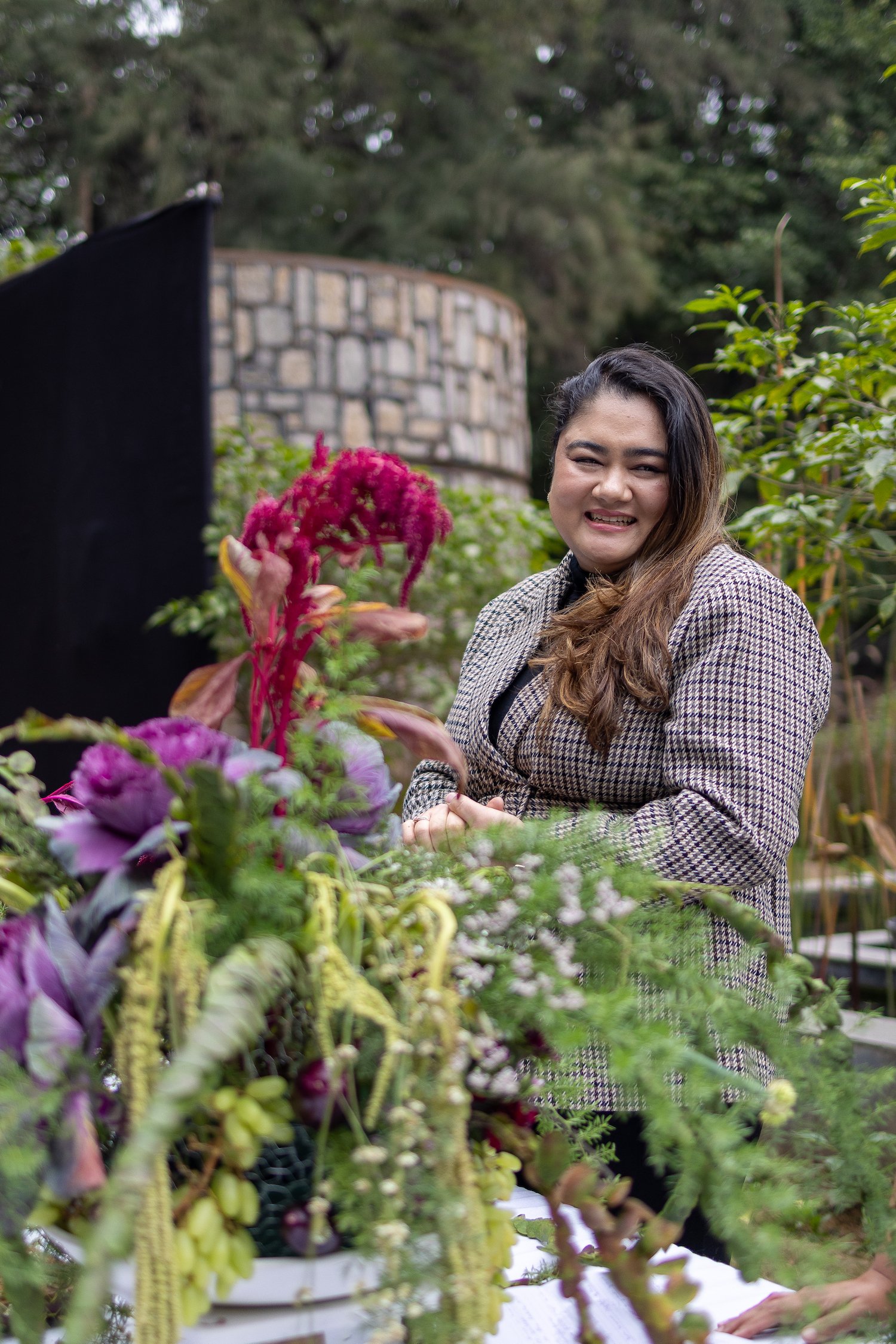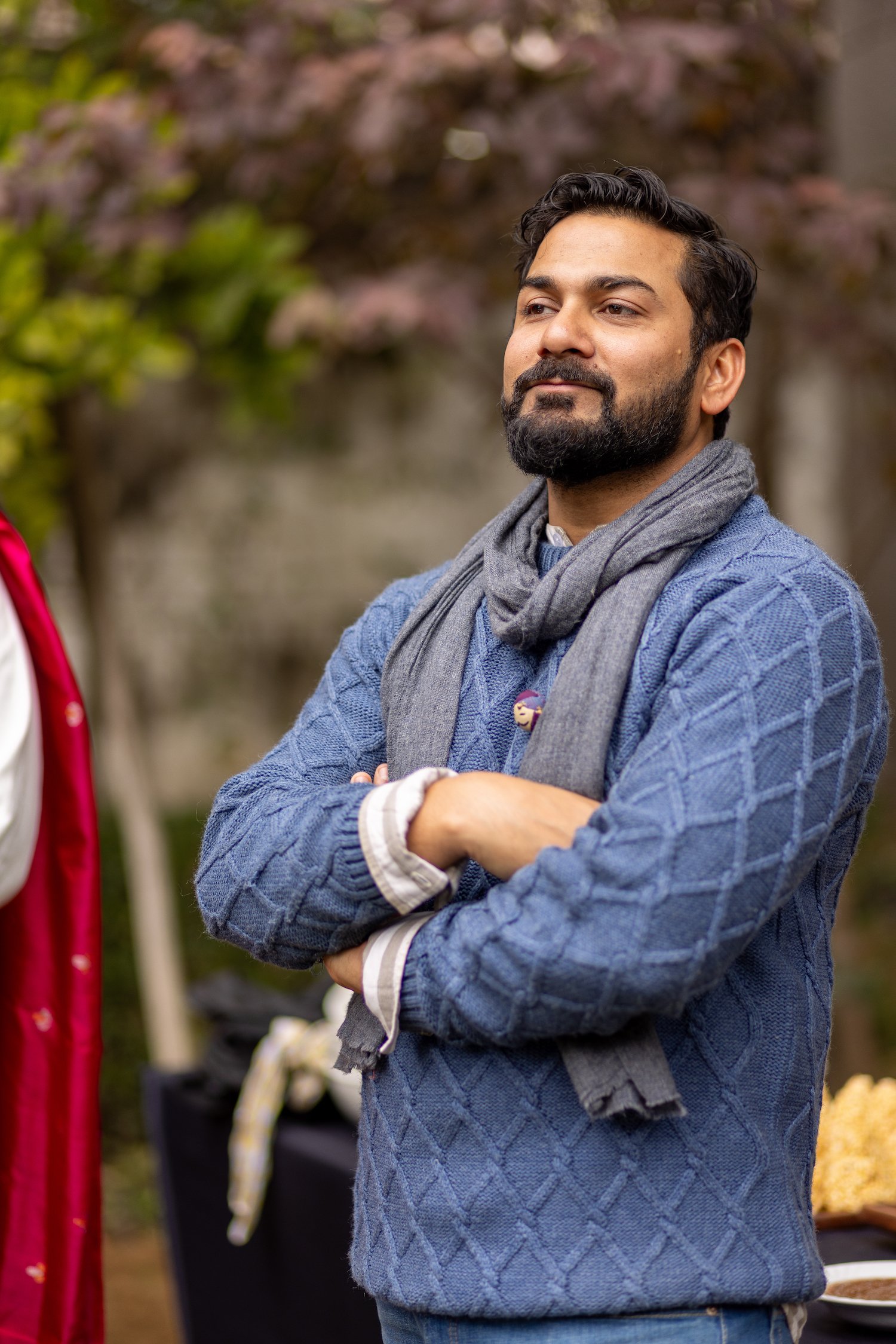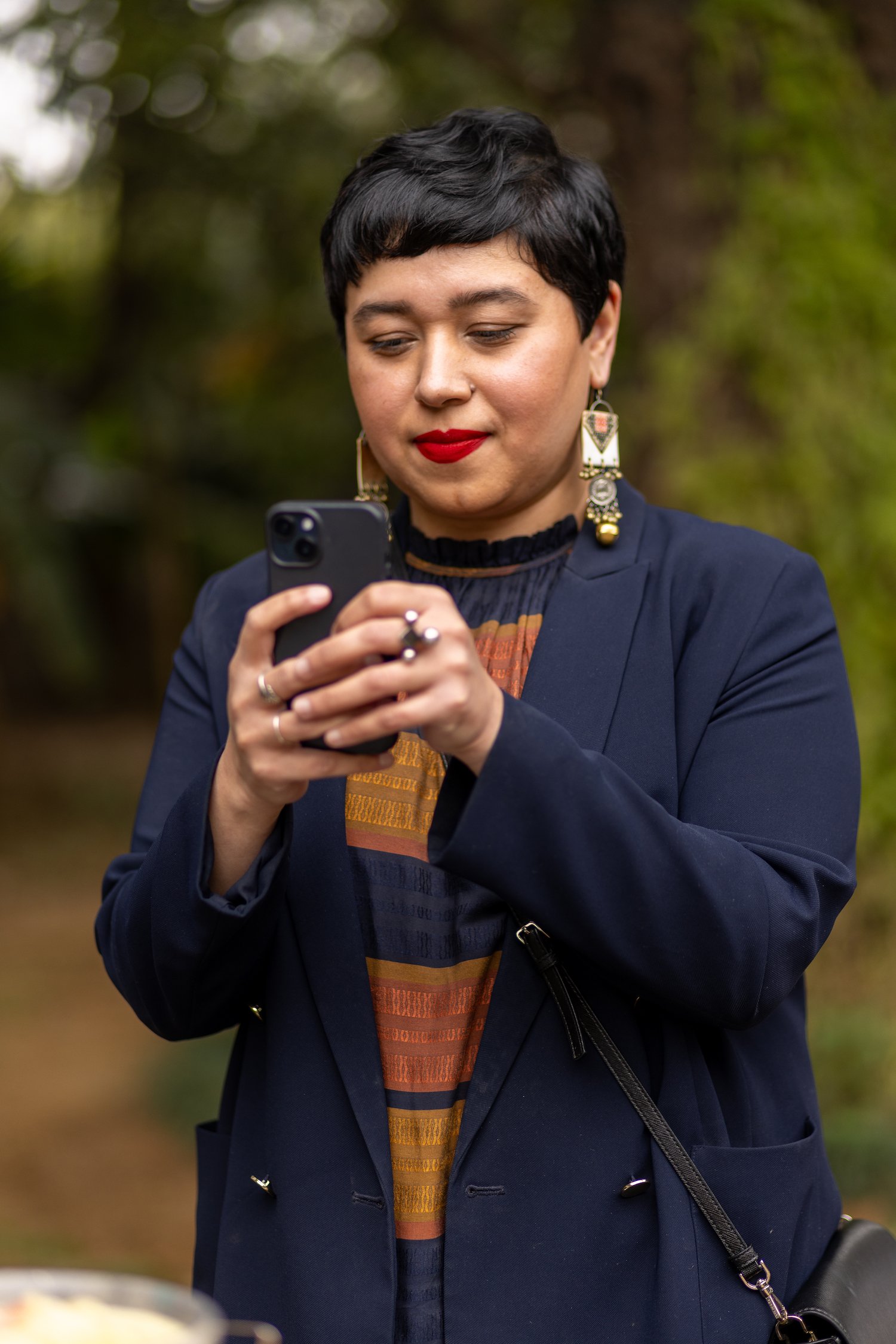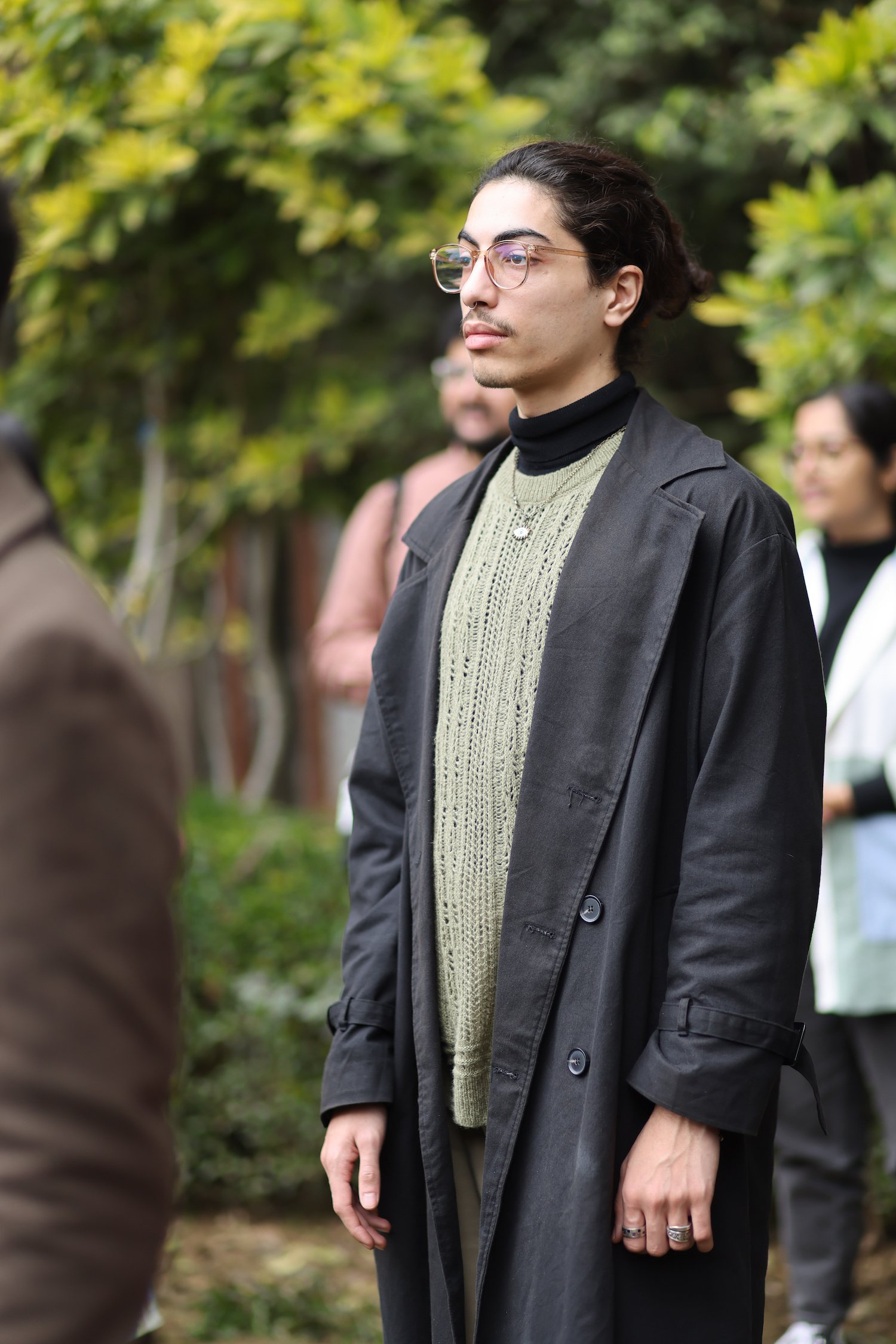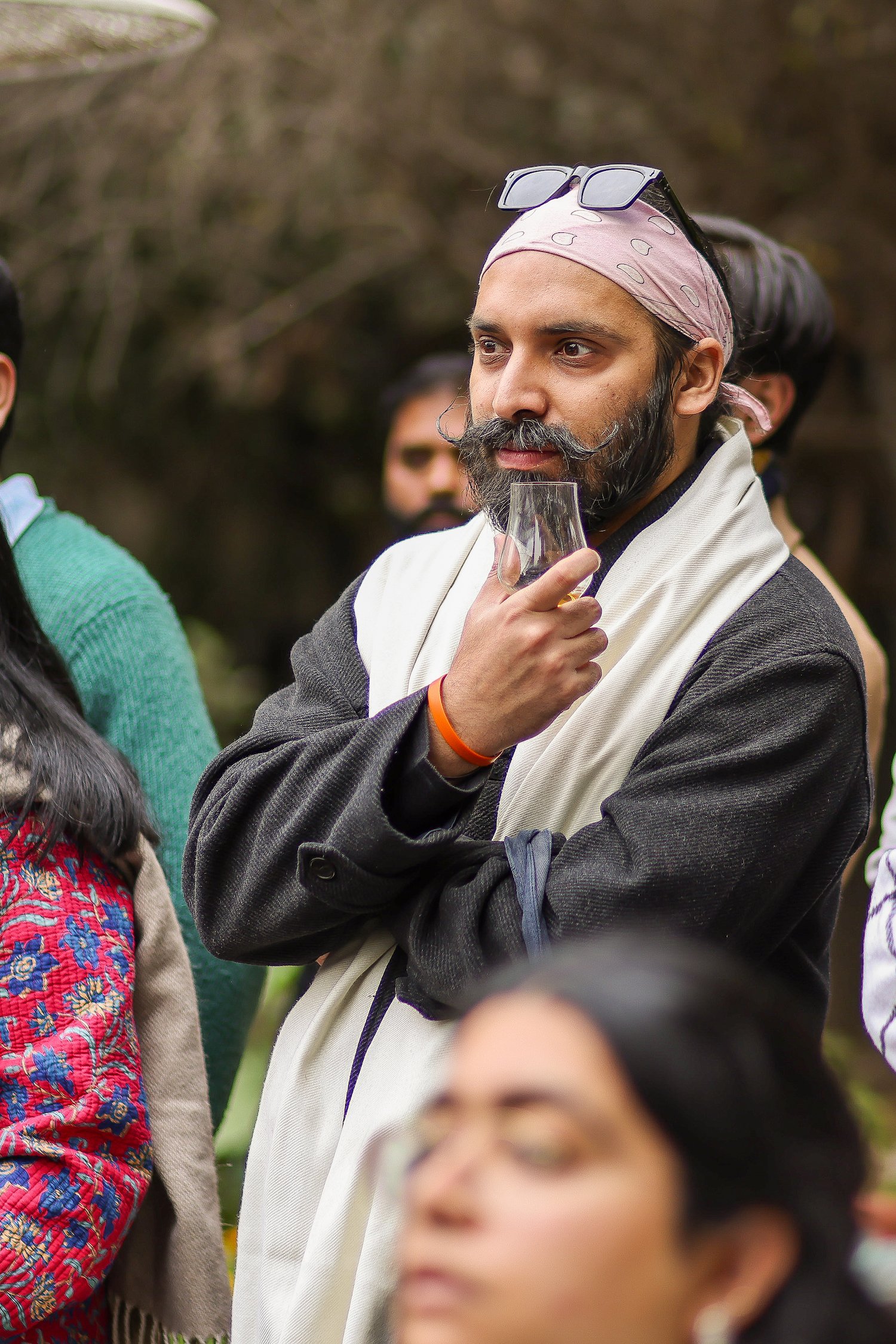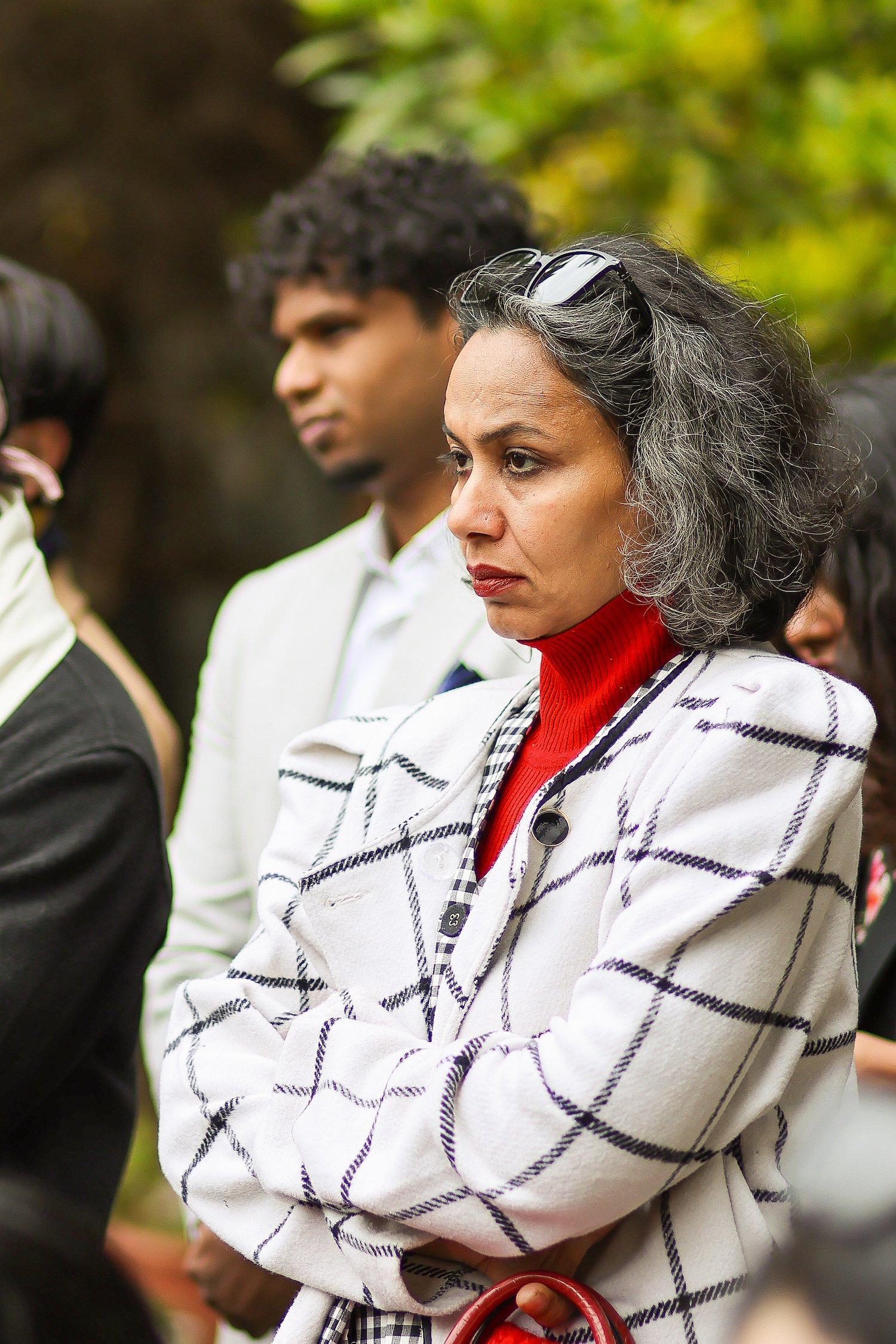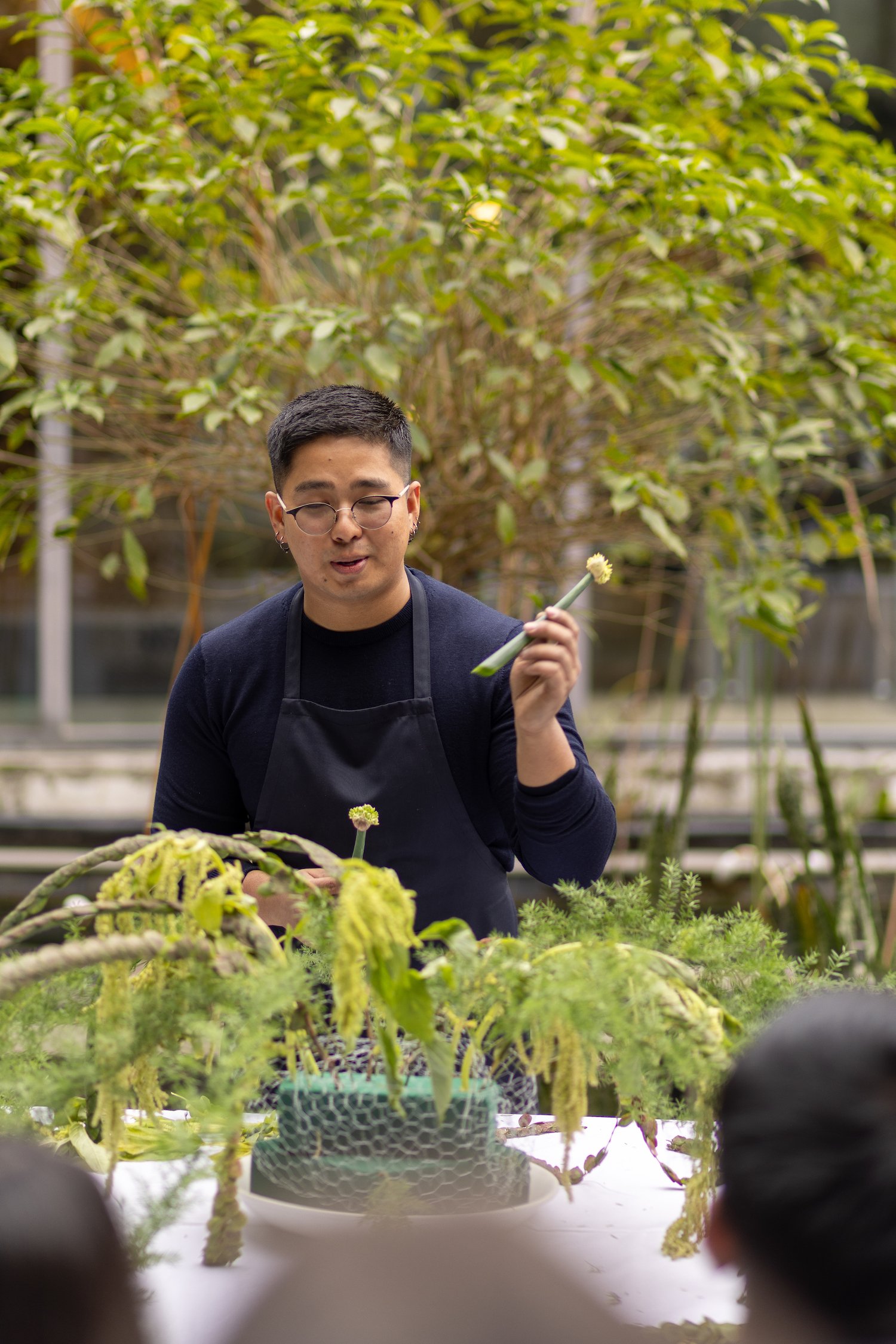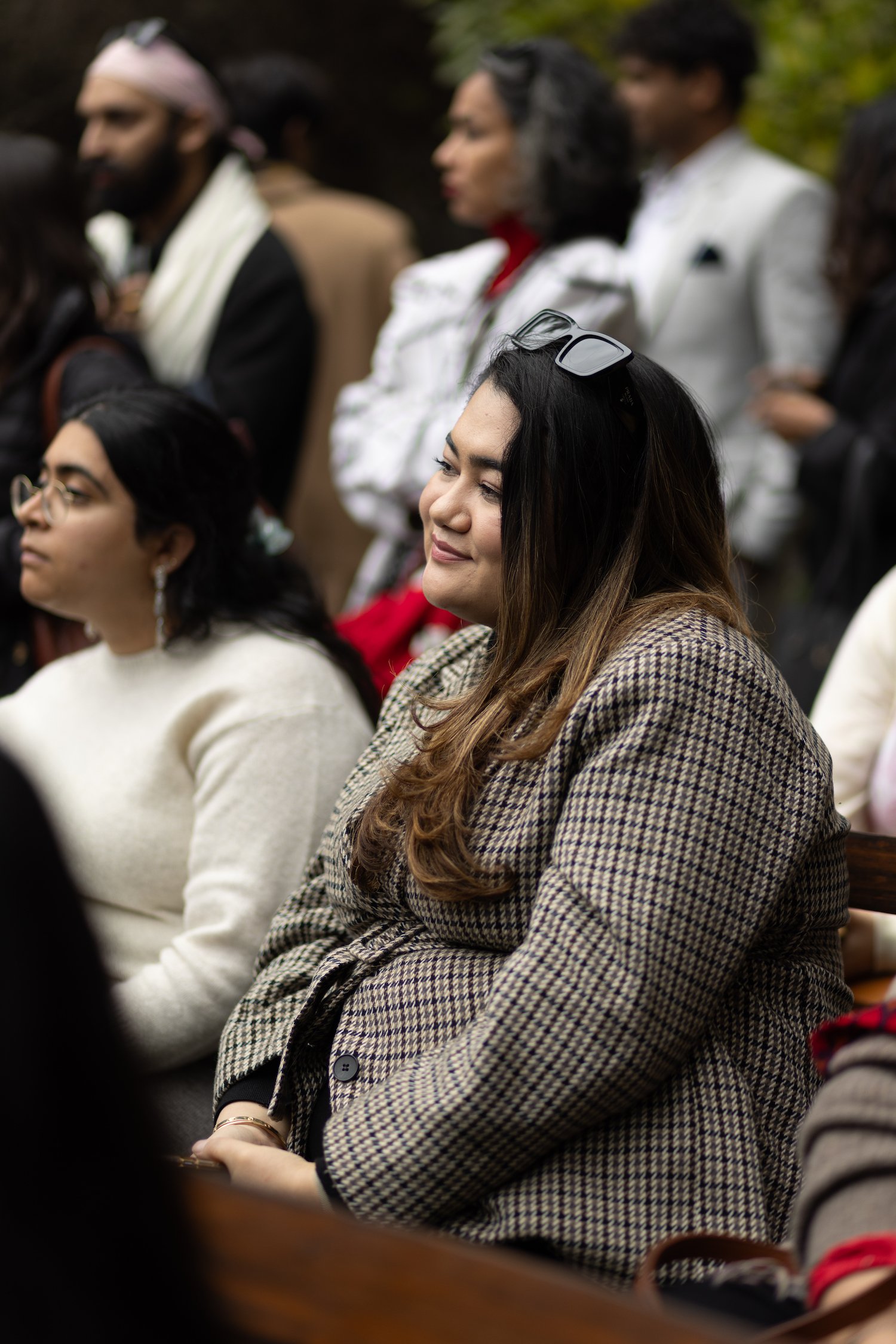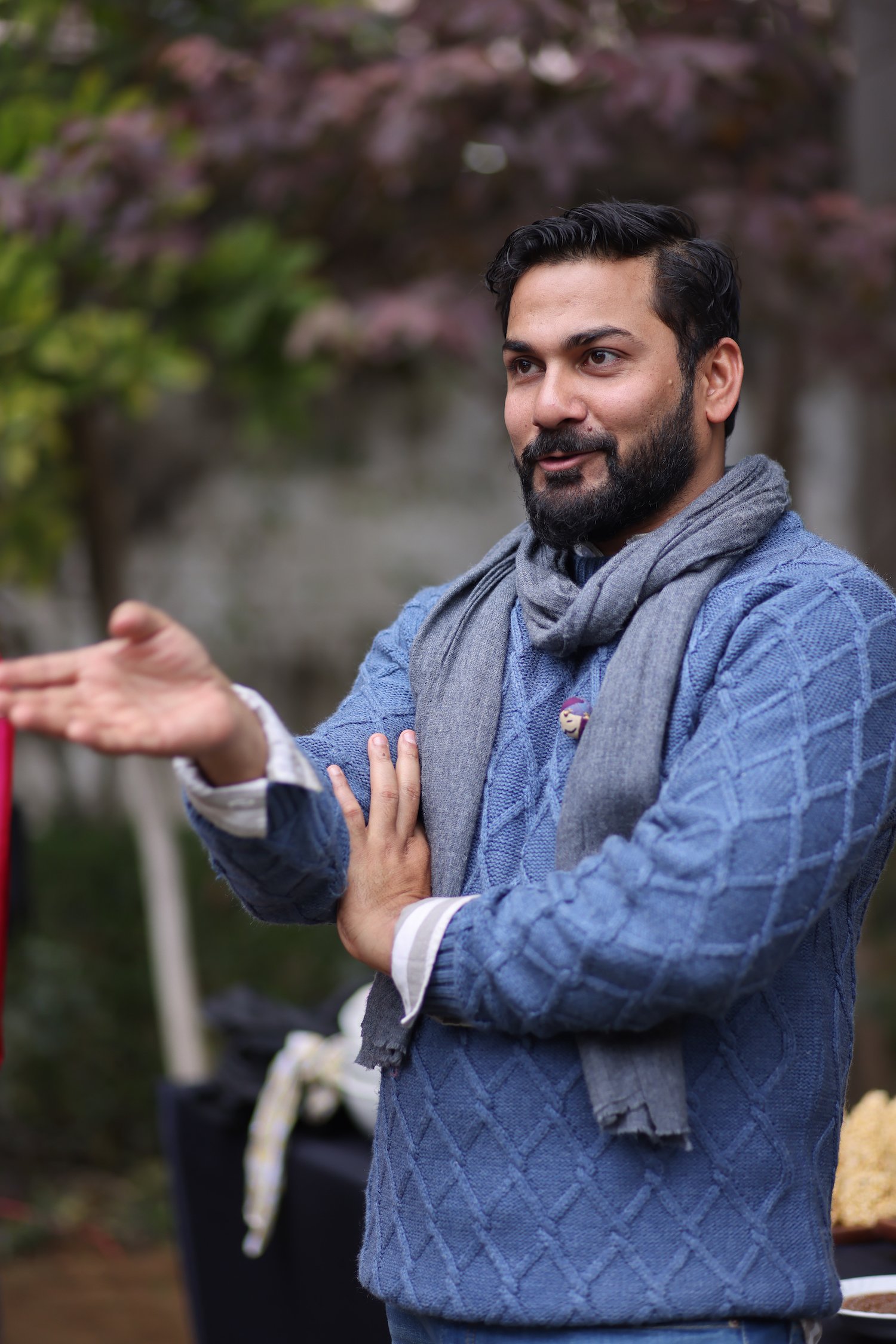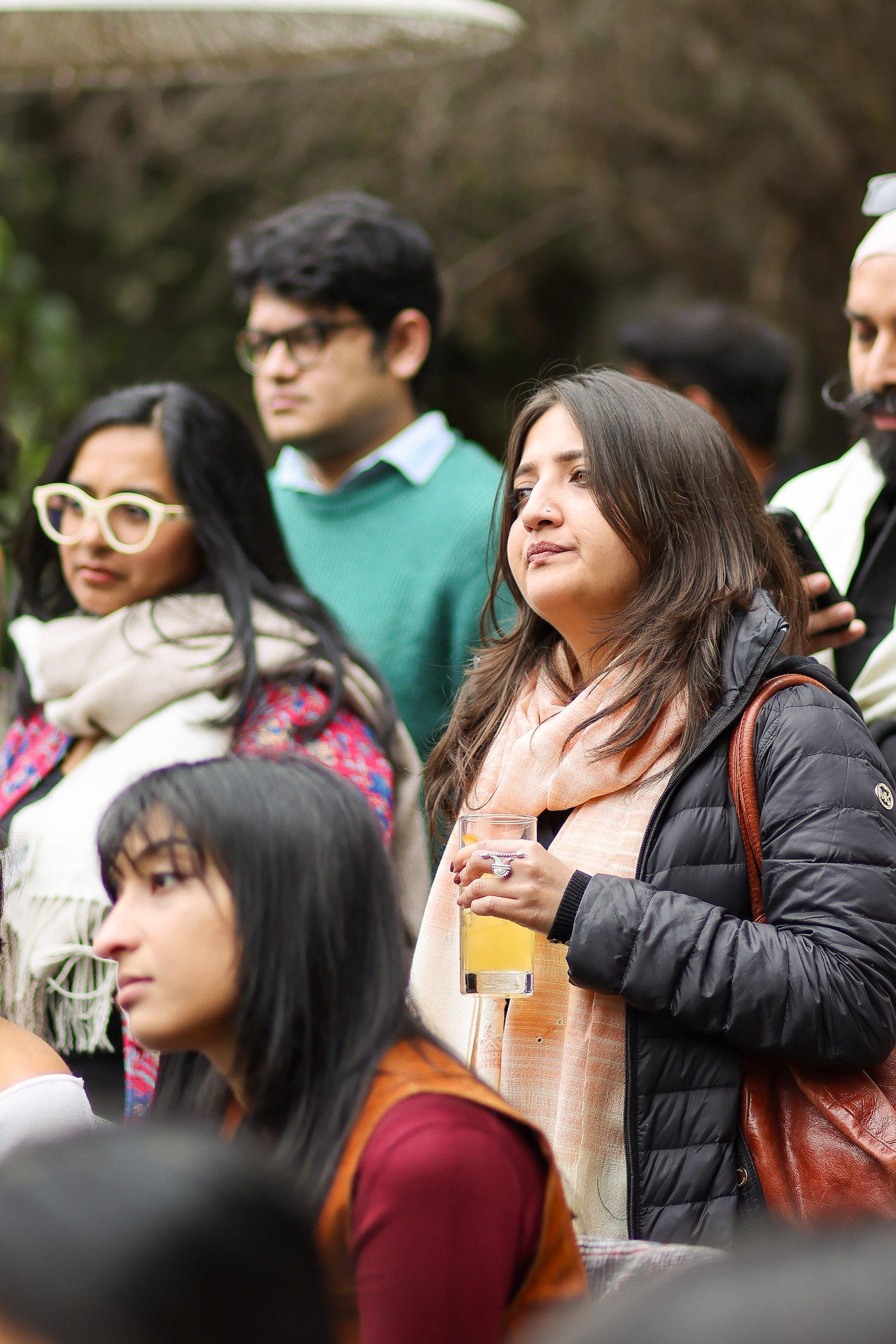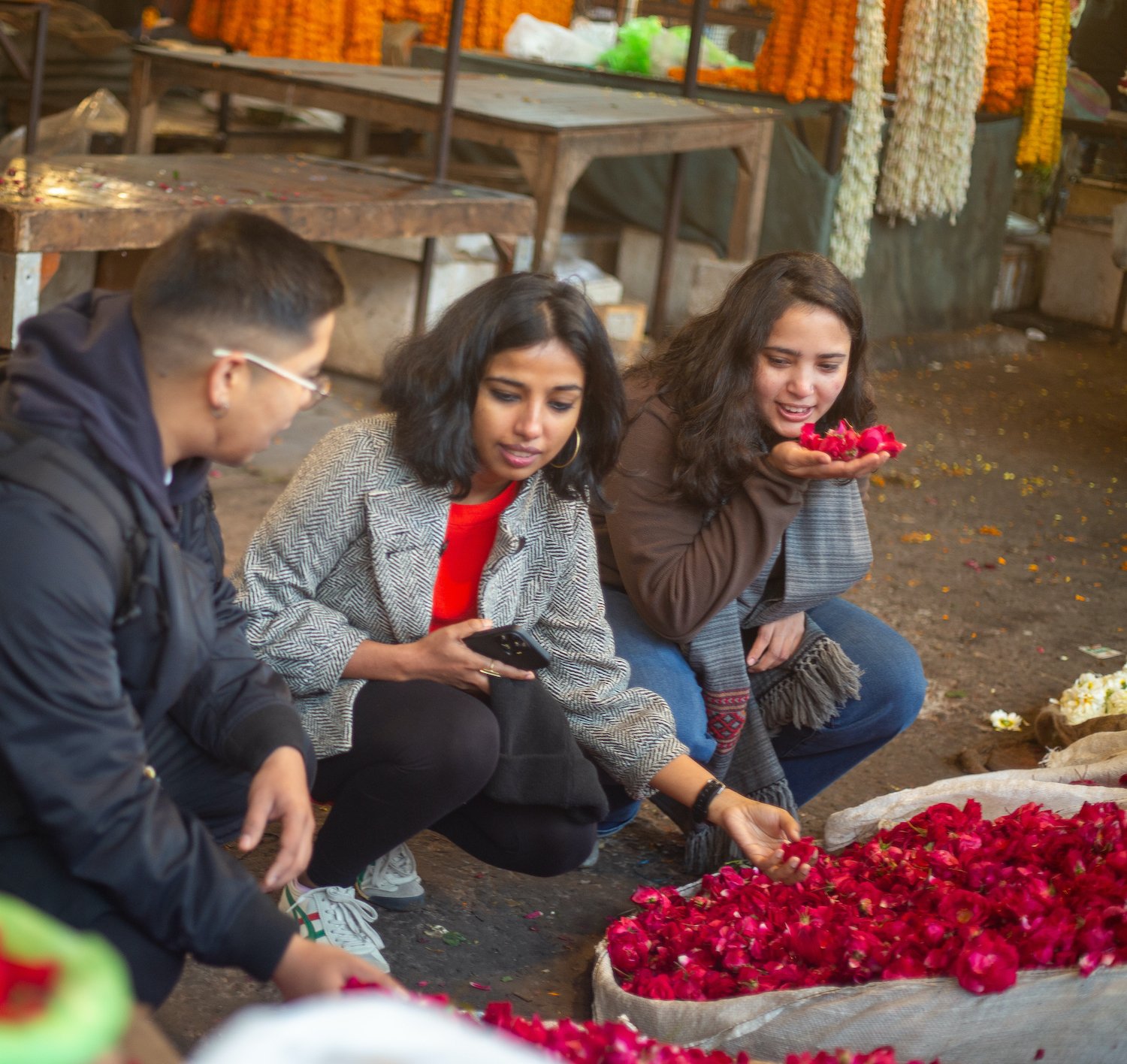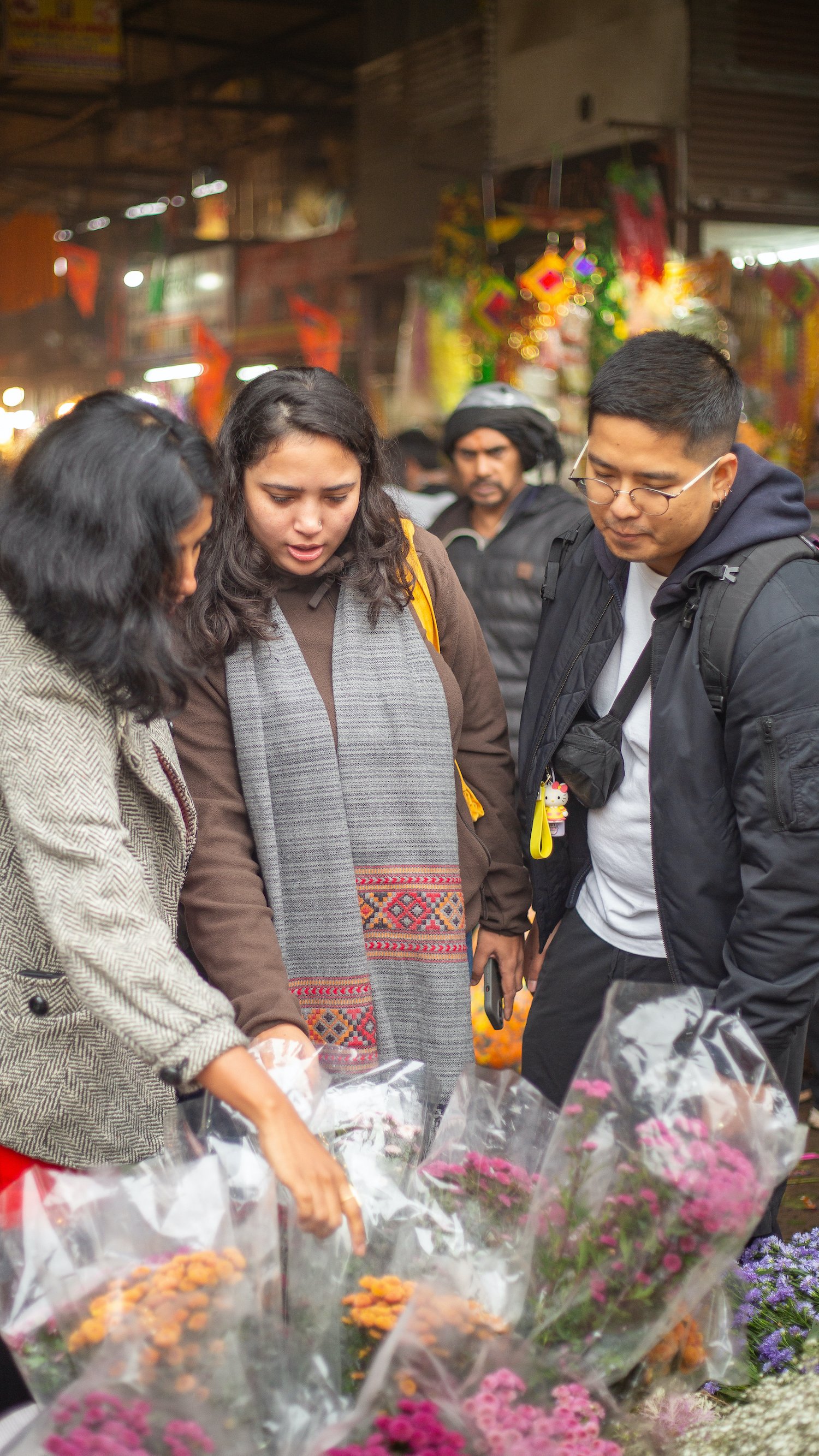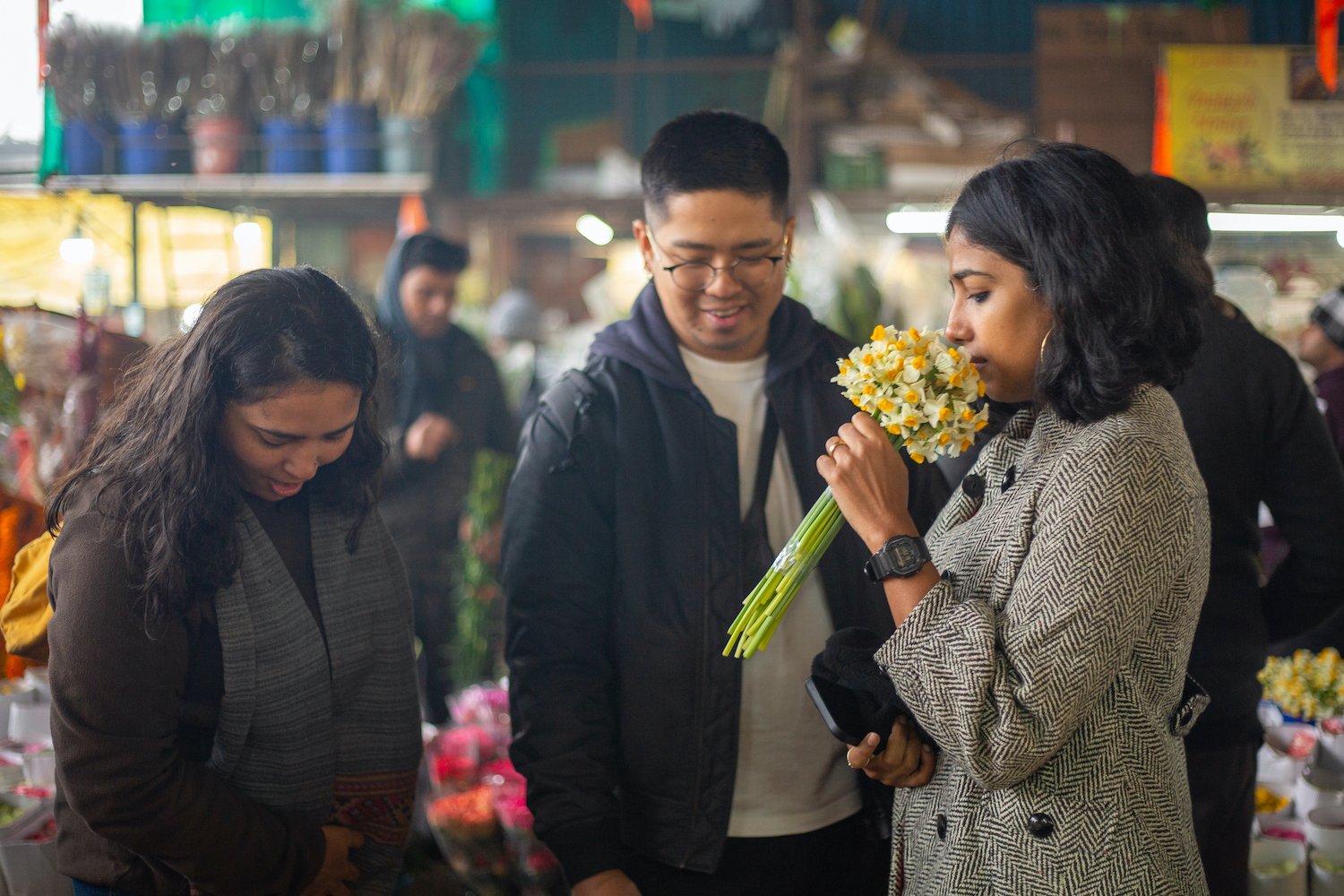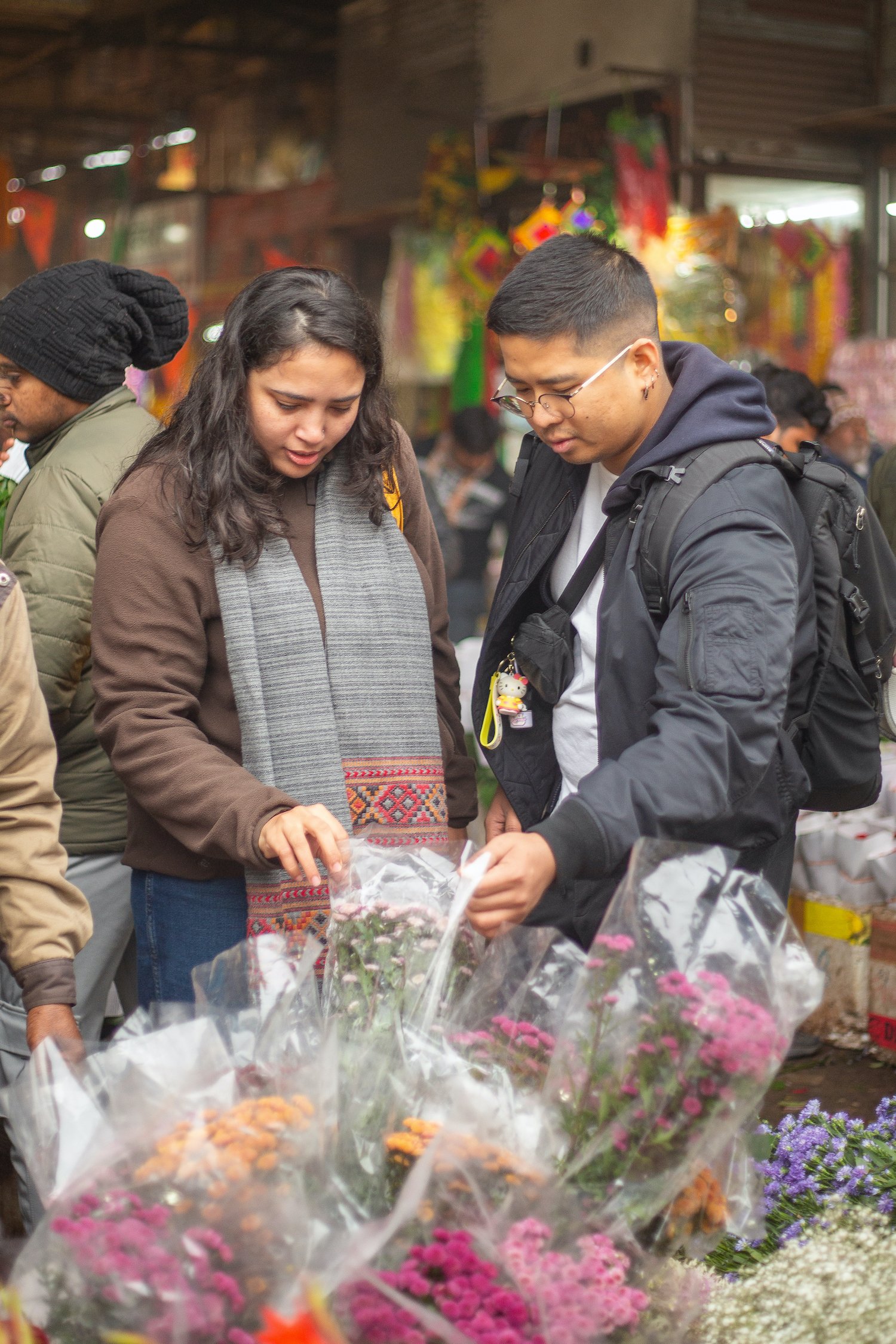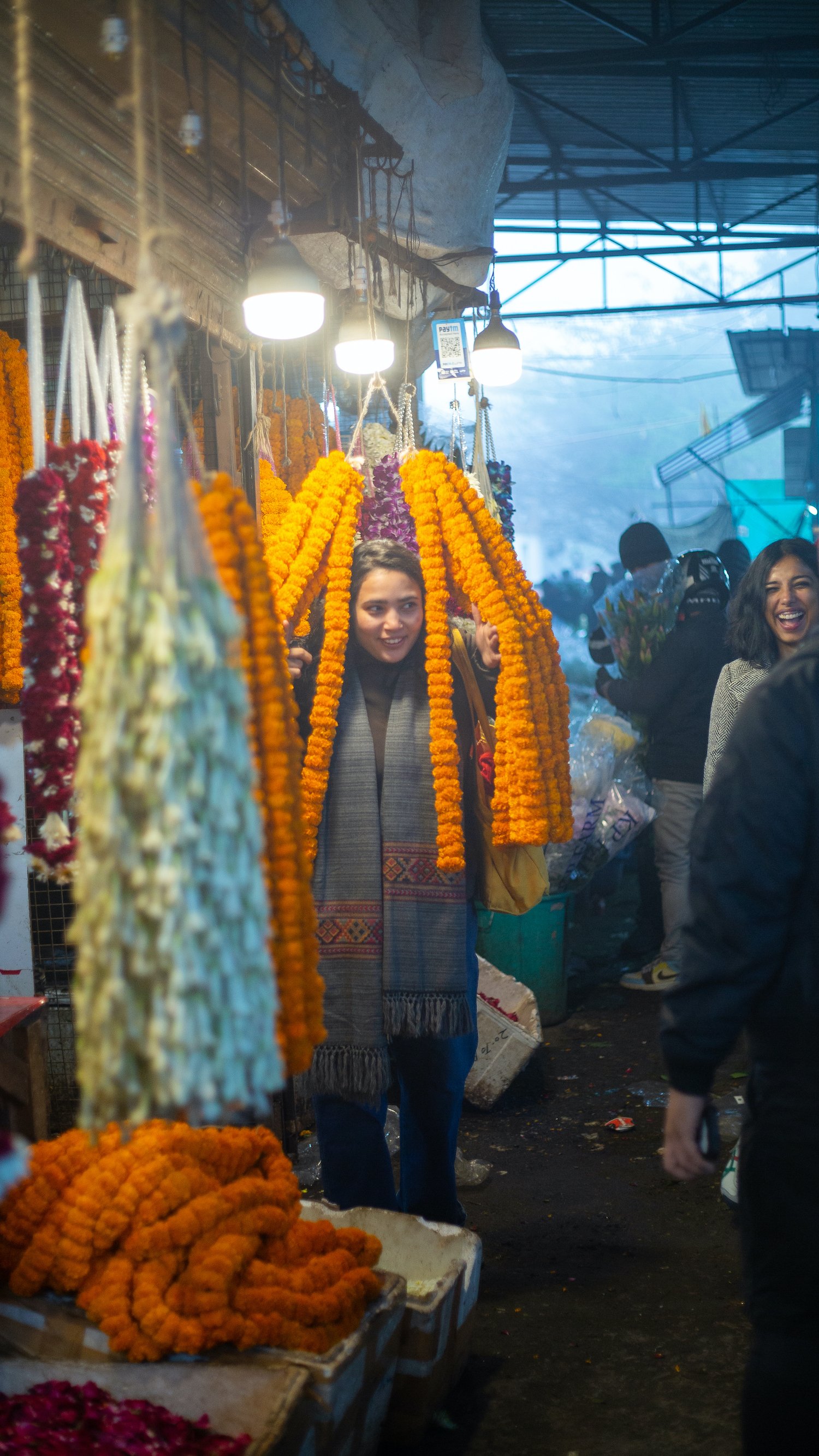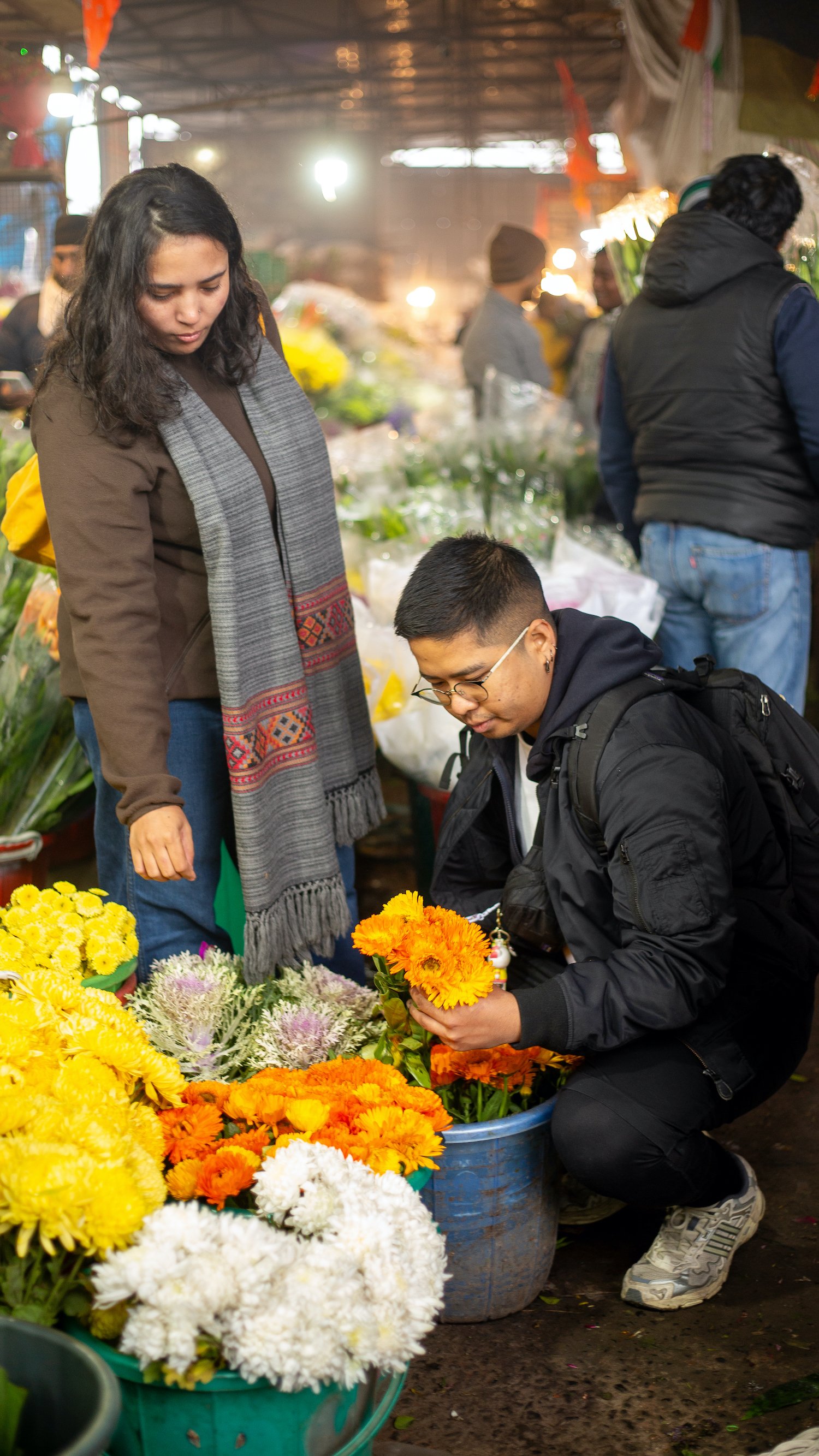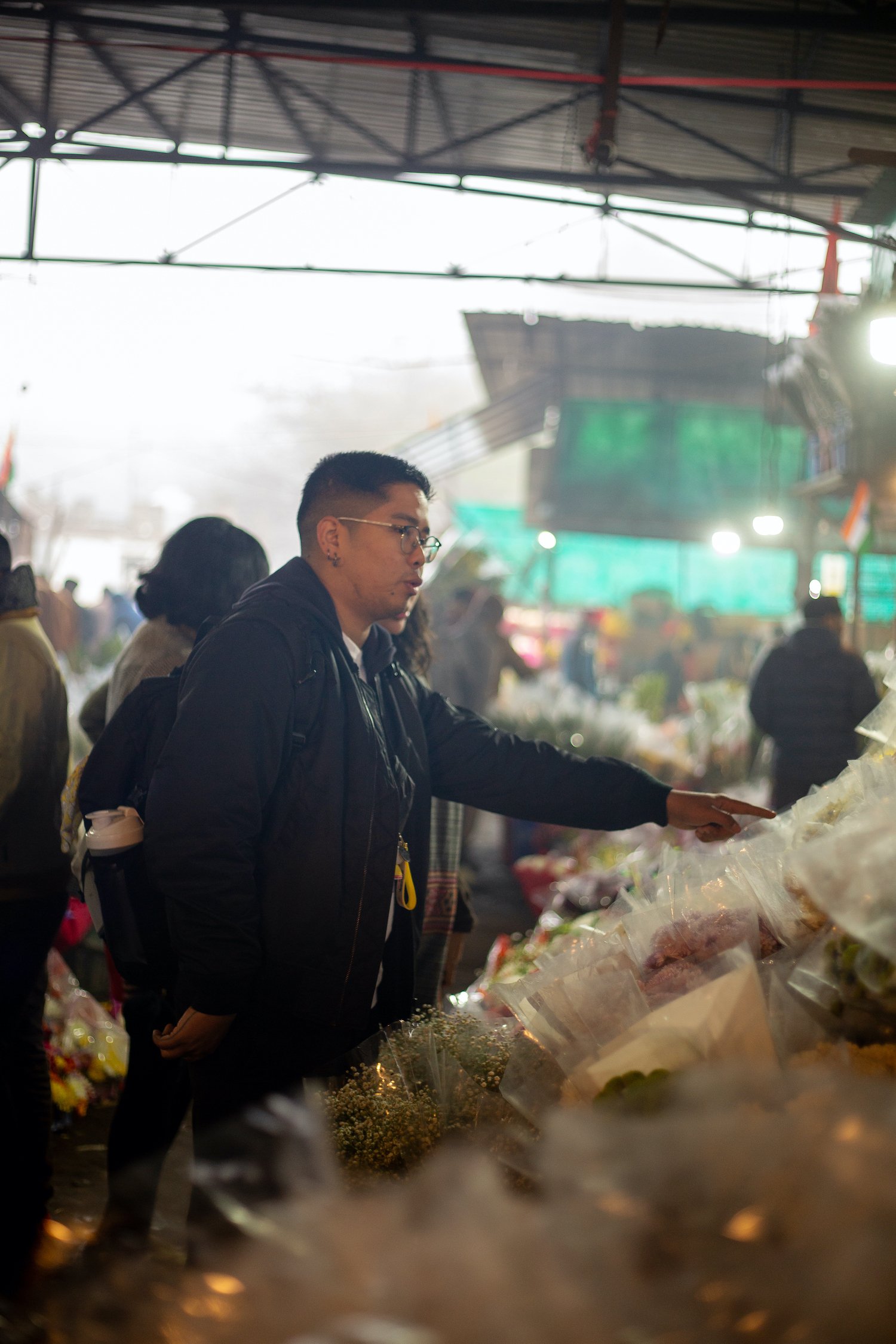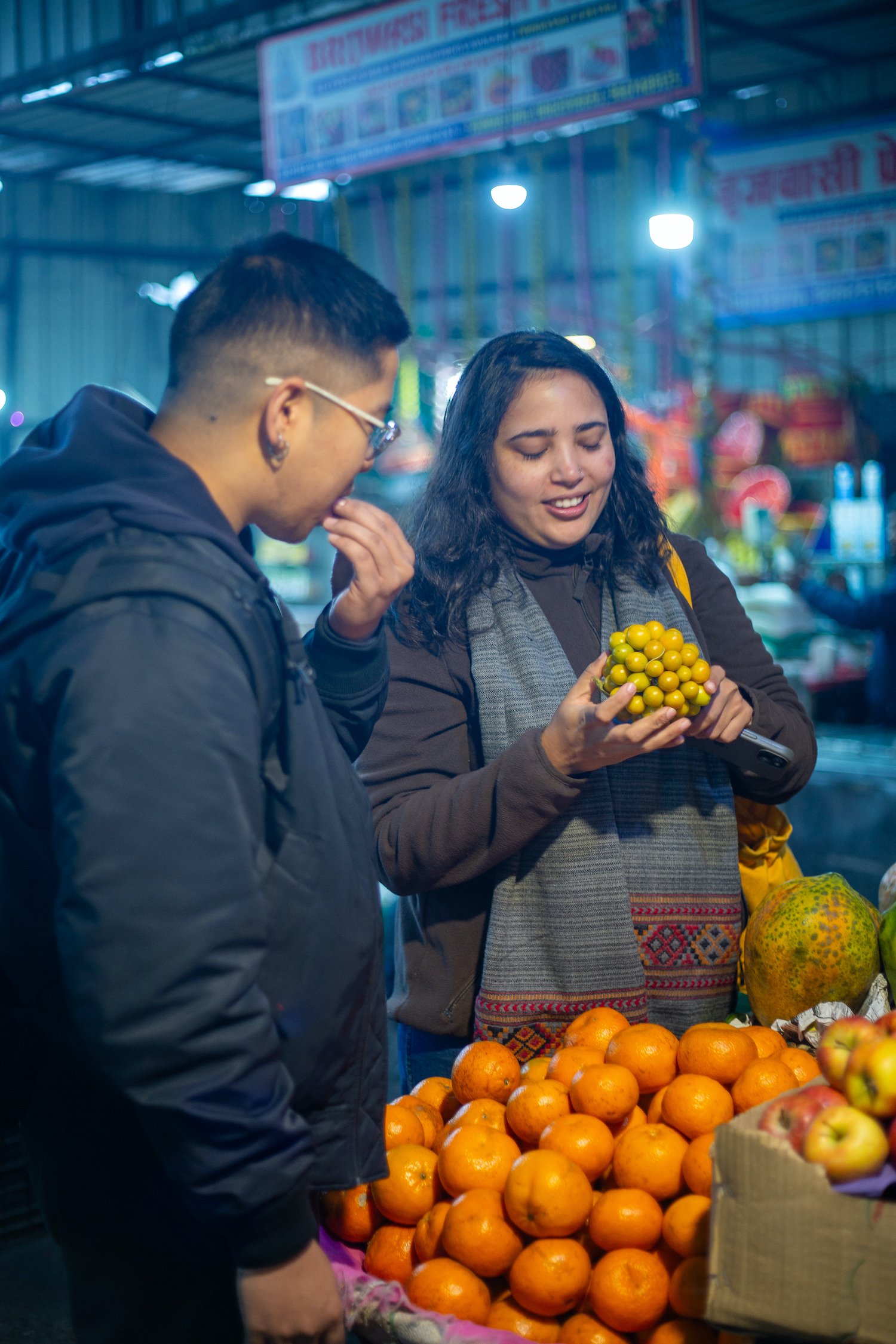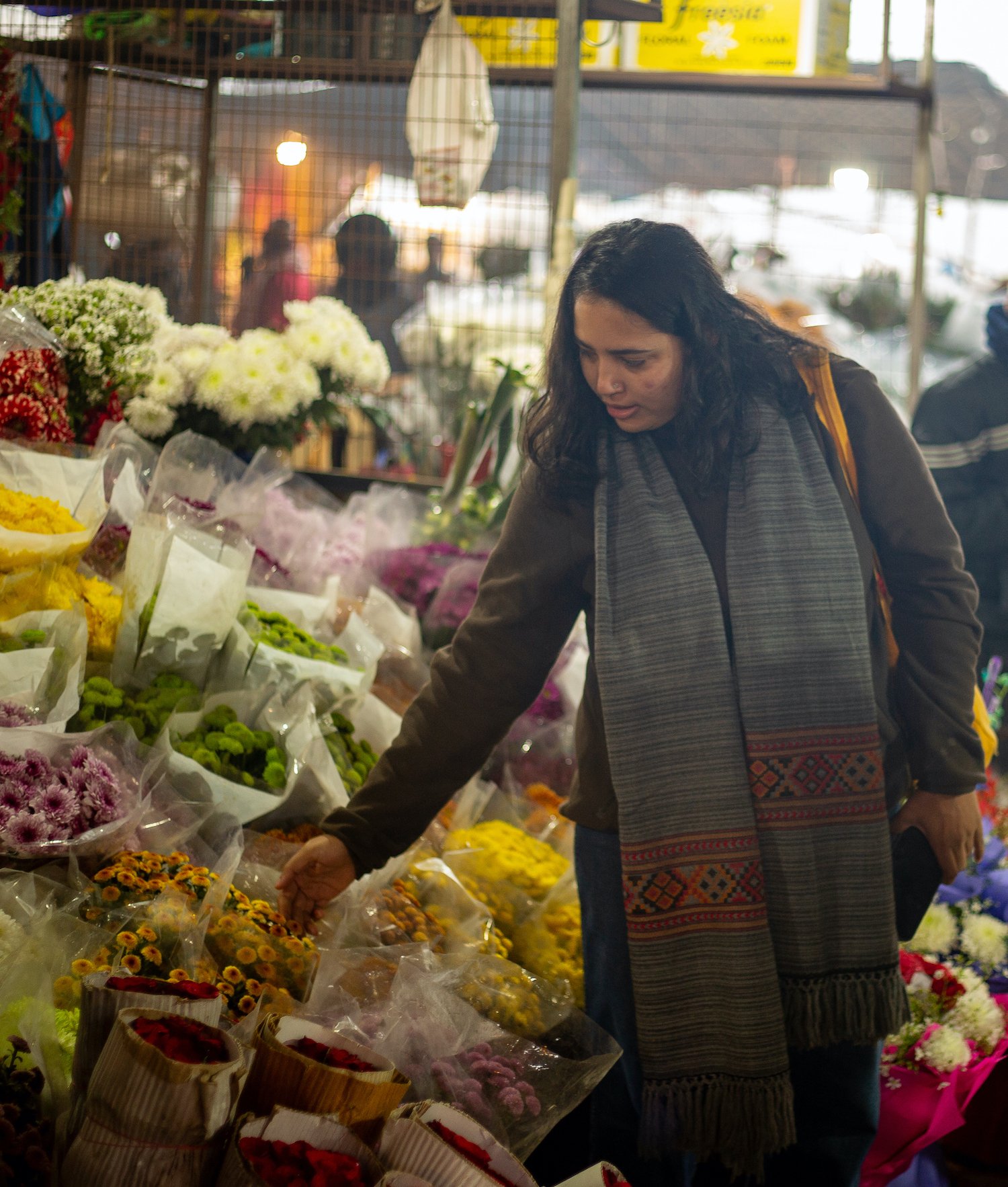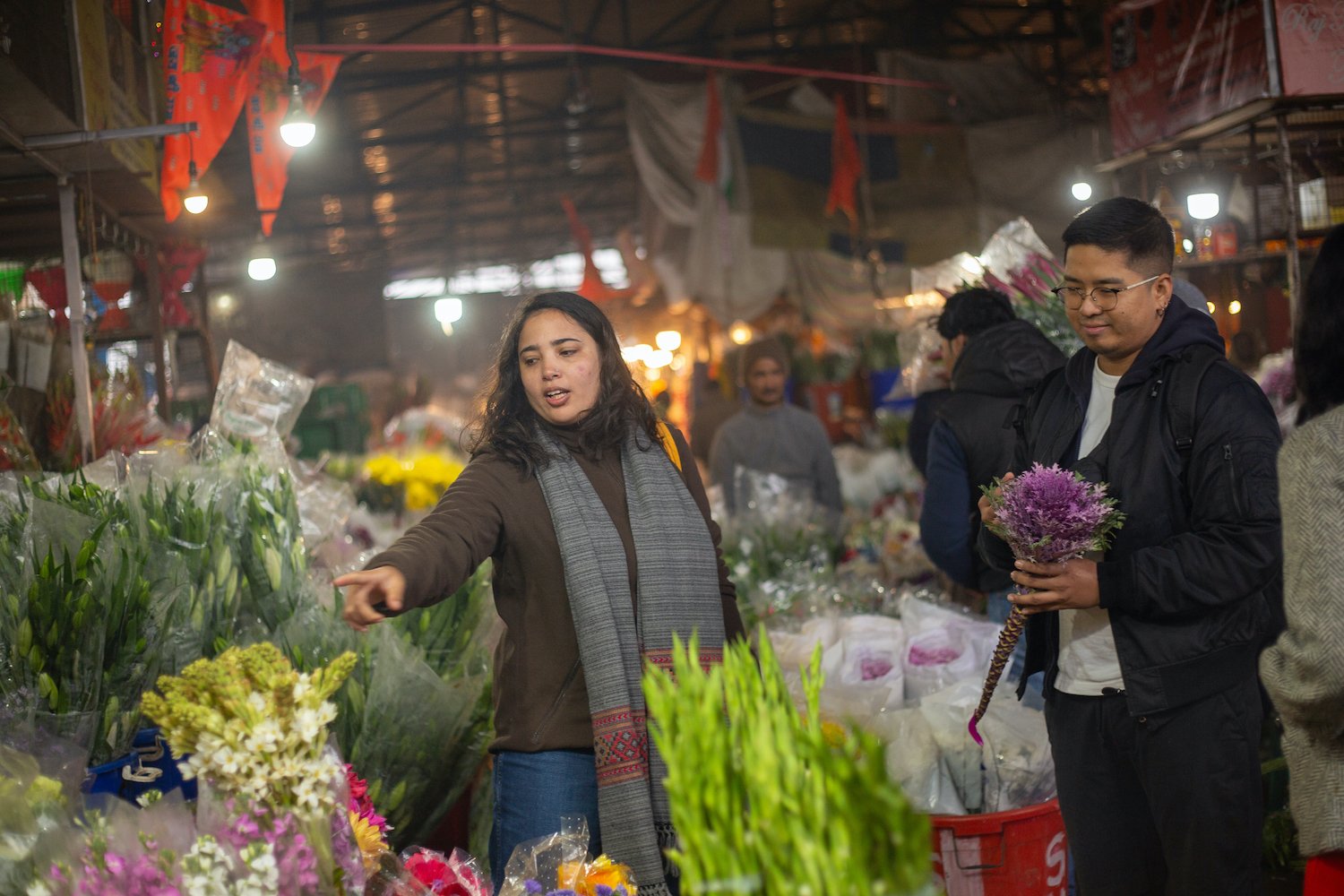Goya was invited to curate a session at the India Art Fair in Delhi this year, for the Young Collectors’ Program. Together with chef and researcher, Taiyaba Ali, and artist and textile designer, Daksha Salam, we curated a sensorial experience of food, to explore invisible facets of the city’s expansive cuisine and heritage.
Delhi’s layered and complex food culture is woven with cuisines of immigrant communities that remain faceless; invisible in the canvas of the city’s food conversations. While high cuisine and fine dining often borrow from the creativity and innovation of the streets, these conversations remain absent in intimate dining spaces. Over a grazing table format that featured foods from 6 of these communities: Bihar, Manipuri, Himalayan, Nepali, Afghani and post-Partition Delhi, guests experienced flavours and dishes like litti chokha, kapok, shapale, tingmo, achar mulo, ema datchi, sel roti, aloo dum, Afghani naan, chicken seekh, makke ki roti, sarson ka saag, jaggery, white butter and more.
The afternoon began with a sensorial experience of produce and beauty, as Daksha used produce from the local market to style the table, demonstrating the role of beauty in self-expression and celebration for communities on the margins. The table was laid with crockery from our partners at the Singleton Social X Nicobar collection, featuring marble cake stands, wooden platters and ceramic bowls.
Taiyaba led the conversation with people representing these flavours and communities: chef and author Sadaf Hussain, artist Daksha Salam, Nicole Juneja of Mood in Delhi, Dickey Bhutia of Lha Kitchen, Aditi of Ilham Kitchen, representing the Afghani refugee women through UNHCR, and chef Megha Kohli.
Here’s a peek at our market visit the day before, where we went to source flowers, vegetables and foliage.



